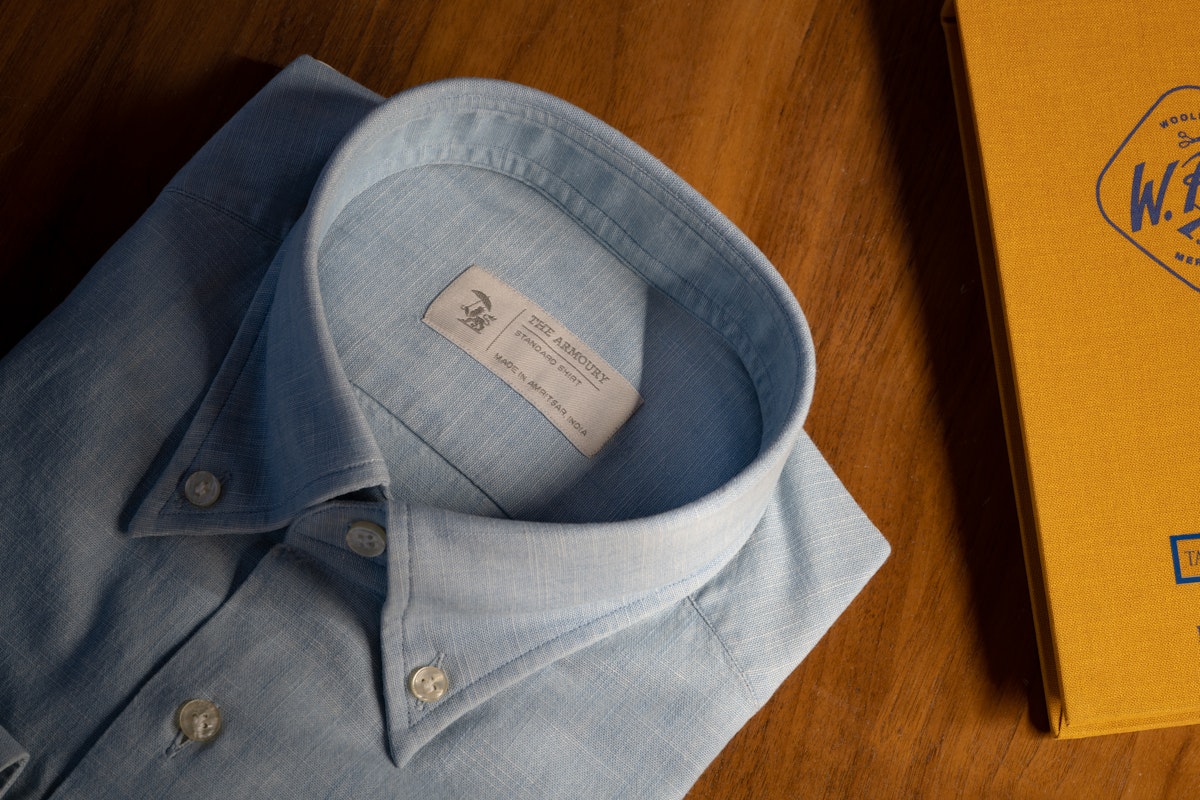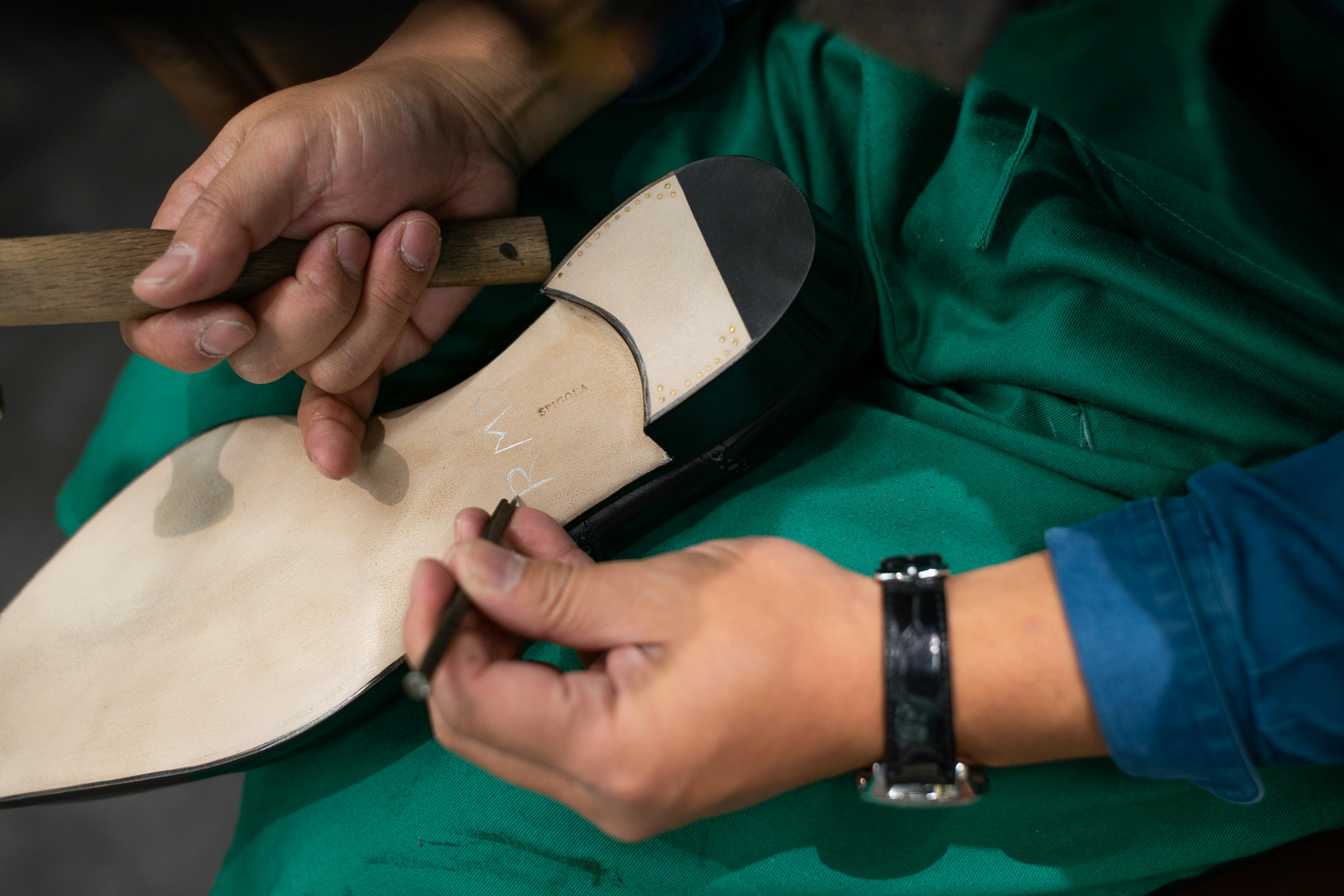
For Koji Suzuki, the most interesting part of being a shoemaker also happens to be the most difficult.

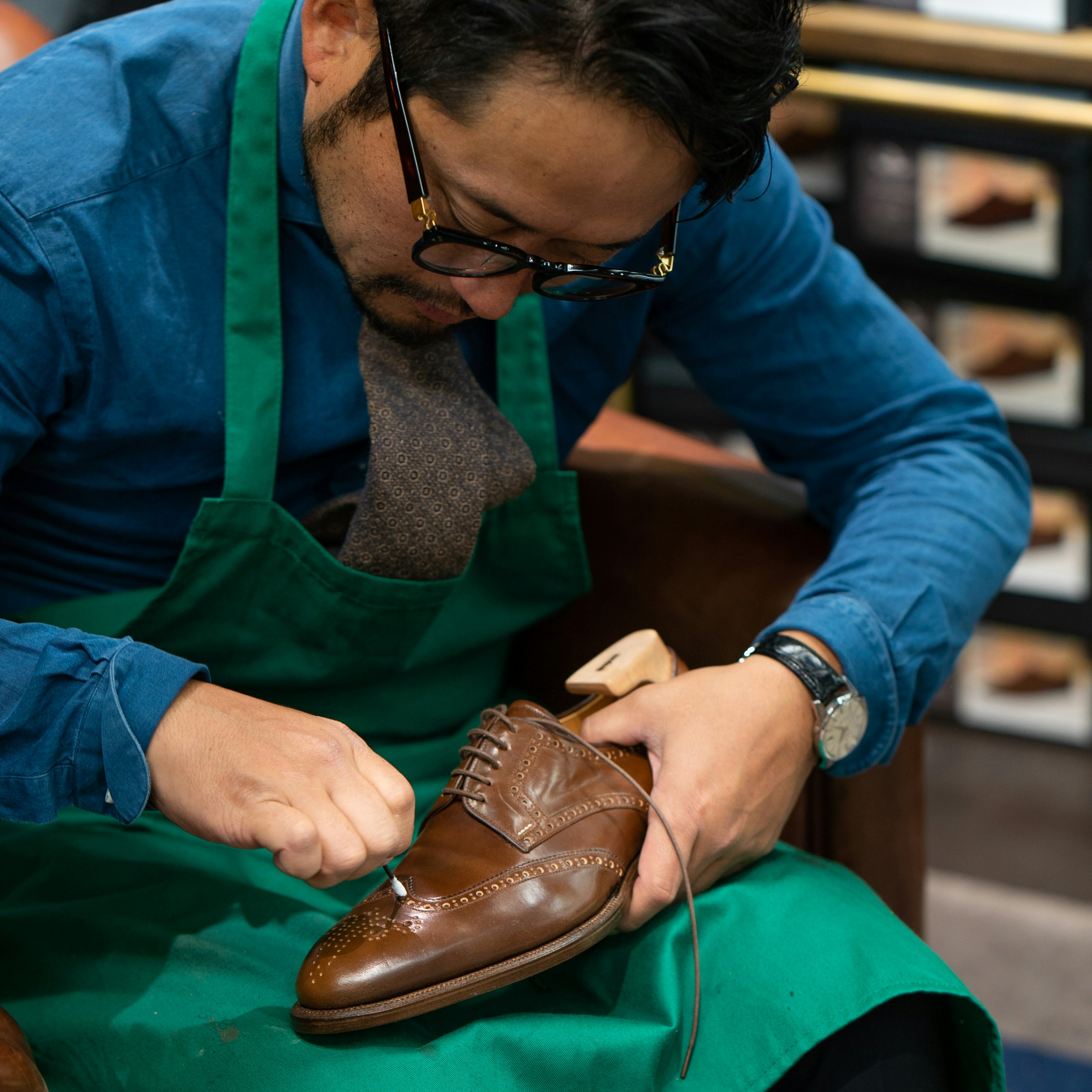
Koji Suzuki is a master of shoemaking who takes a detailed approach to the craft. For Suzuki-san, no two days are the same. “One day I might be making shoe patterns. Another day I will be polishing shoes, and then there are days where I get to choose what I do. That’s what I like most about my job – I get to pick what I do and still feel very involved in the process of making shoes".
Koji’s path into shoe-making began long before he was born when his father designed women’s shoes in a factory. Believing that he would follow a similar direction, Koji decided to study shoe design in Italy – the country he believes to be most renowned for making shoes. His career veered dramatically when, by chance, he visited the workshop of Florentine shoemaker Roberto Ugolini.
“Visiting Roberto’s workshop left such a deep impression on me that I eventually decided to switch my career and focus on men’s shoes. I started from nothing back then and had very little money. But under Roberto’s tutelage, I started learning how to make shoes from square one. I also learned how to make Italian style shoes suited for Italian men. Altogether, I worked with him for three and a half years,” Suzuki says.
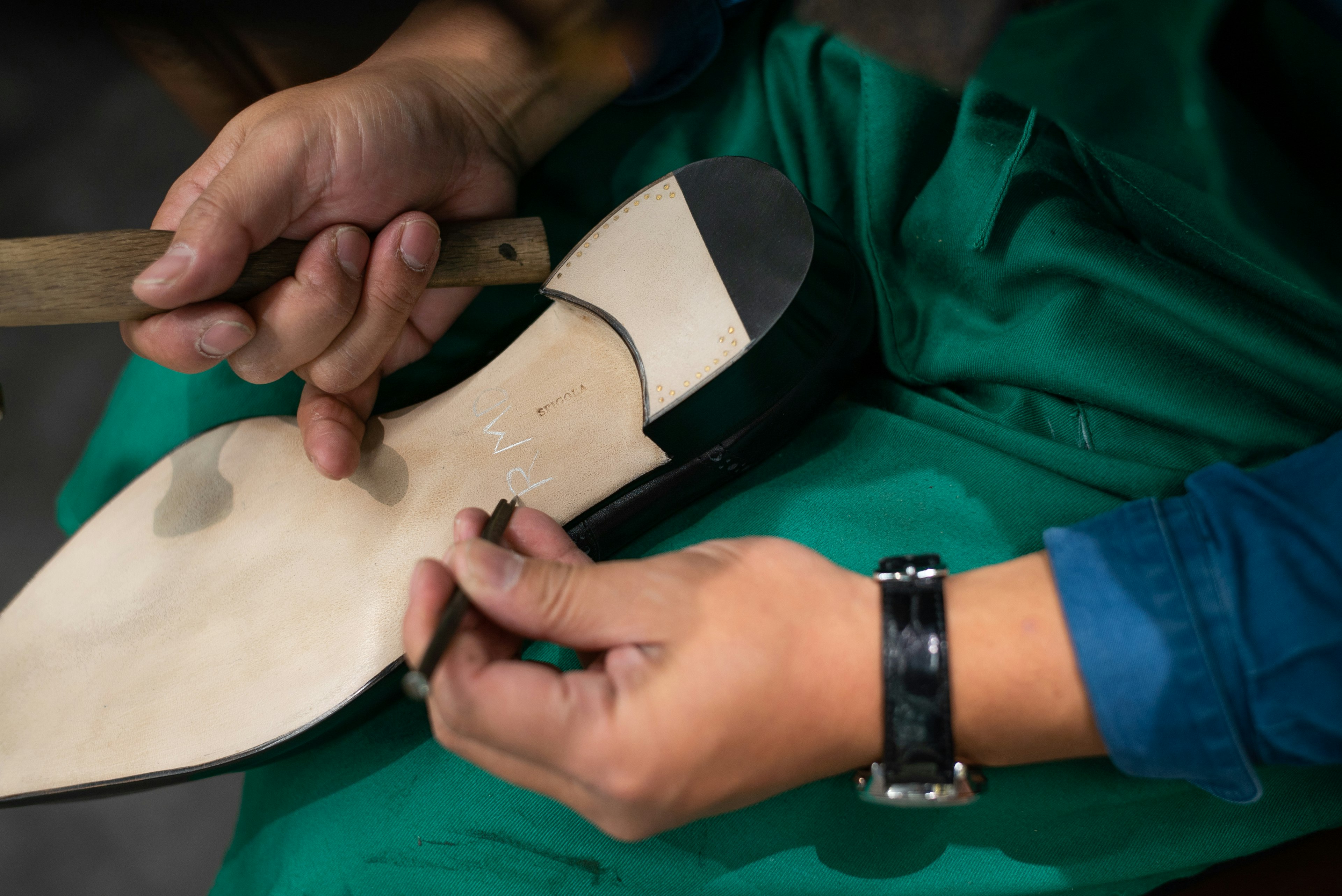

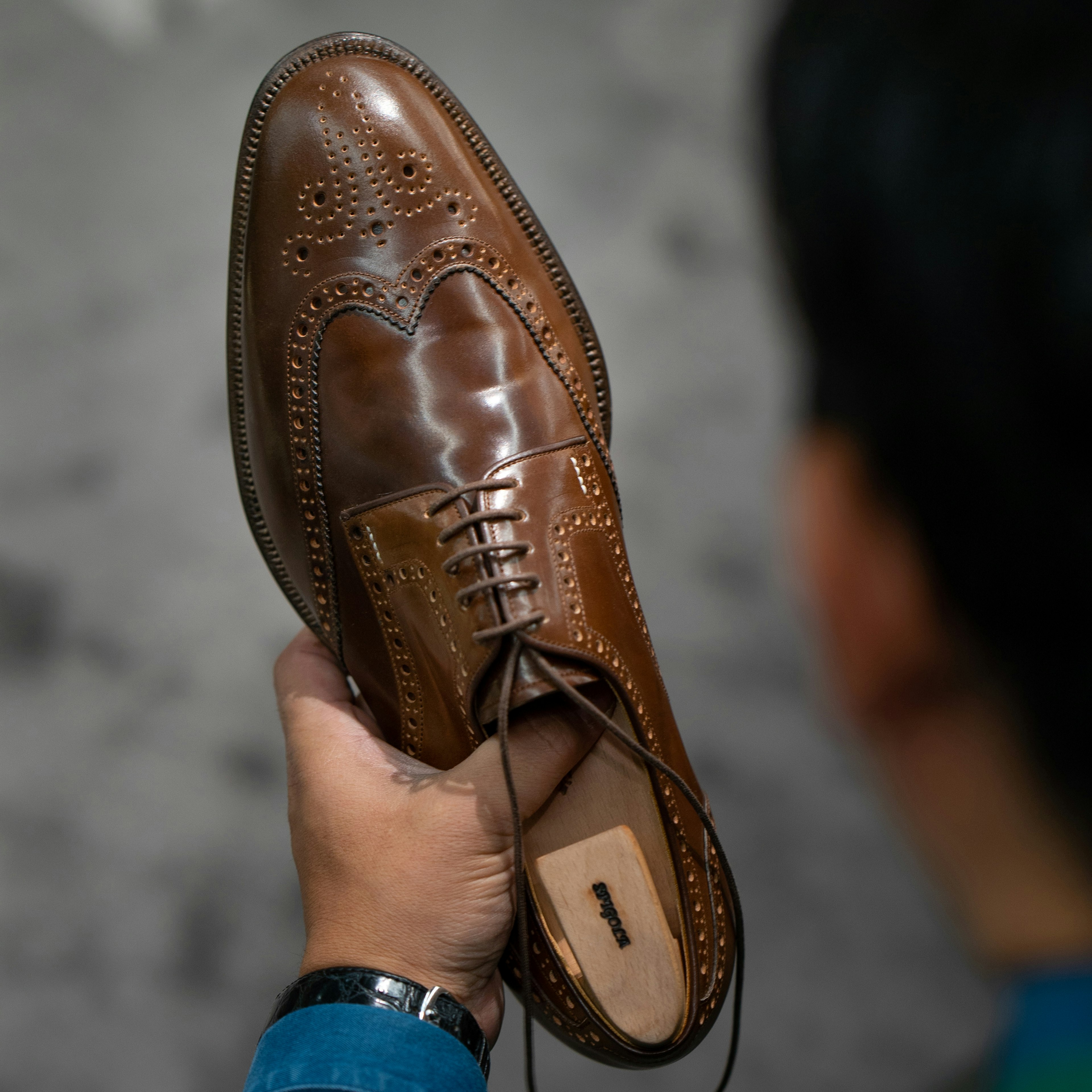
Koji-san is now back in Japan where he runs his own brand from a workshop in Kobe with his younger brother and a few employees; however, his shoes are made in the Italian tradition, and he sources materials from Italy, France, and Germany.

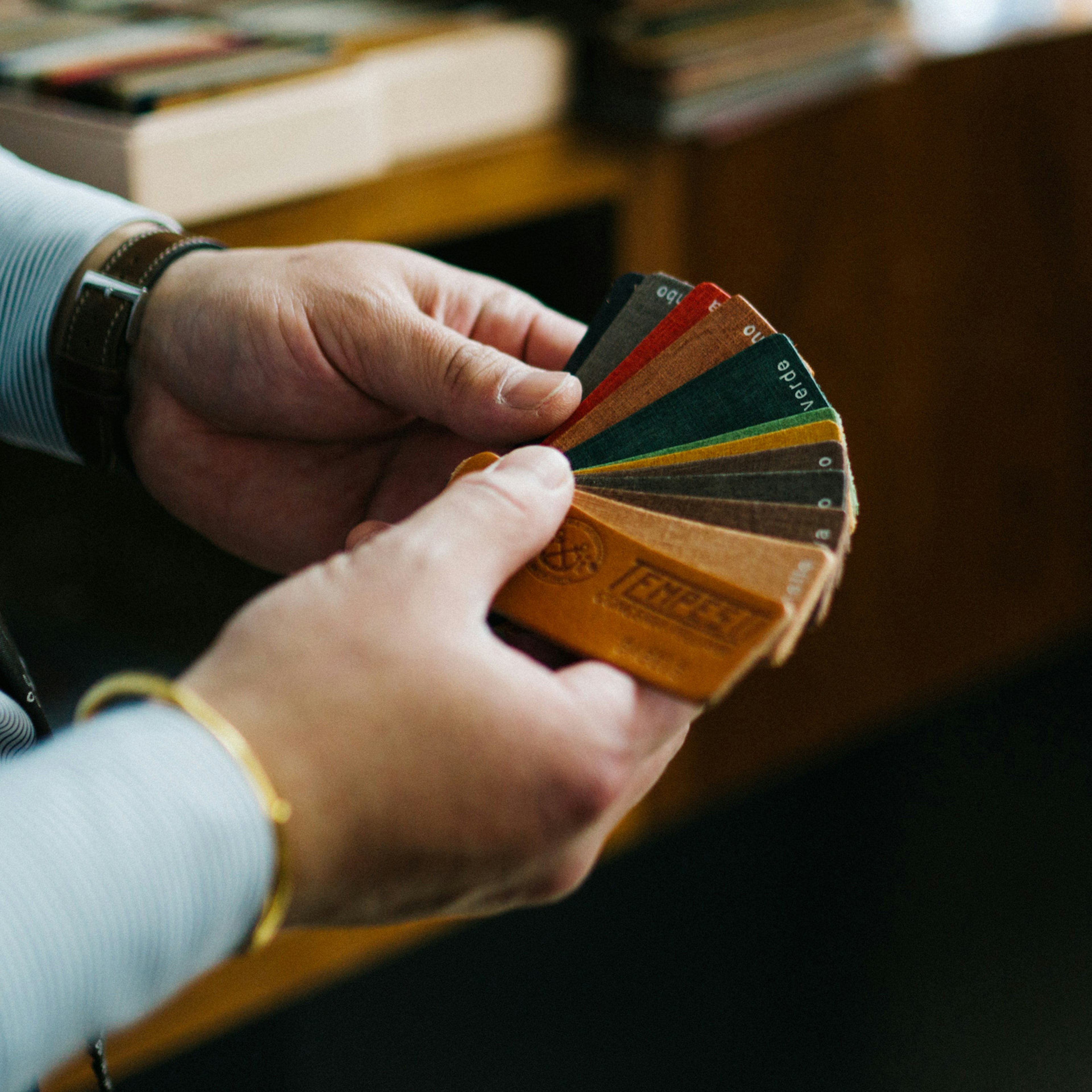
Suzuki explains: "I’ve specifically imported from these countries because they are already known for making beautiful shoes. They are also known for producing leathers which support the shoemaking industry. The leathers especially have a very luxurious quality to them, with the right kind of color and luster that one would want from a special pair of shoes.”
For those keen to purchase a pair of Koji Suzuki shoes at The Armoury, there are two options available: made-to-order and bespoke. The difference lies in the level of customization and measurements. While Suzuki will take measurements for both choices, the bespoke option uses sketches of the foot on paper, and also takes into account other factors such as injuries and fallen arches.
“There are a lot of skills and techniques involved in making a shoe. These include designing the shoe, physically carving a wooden last, and making sure the upper is well defined when it is stretched across the last. However, the trickiest part is blending all of these disciplines and techniques together to create the finished product,” Suzuki explains.

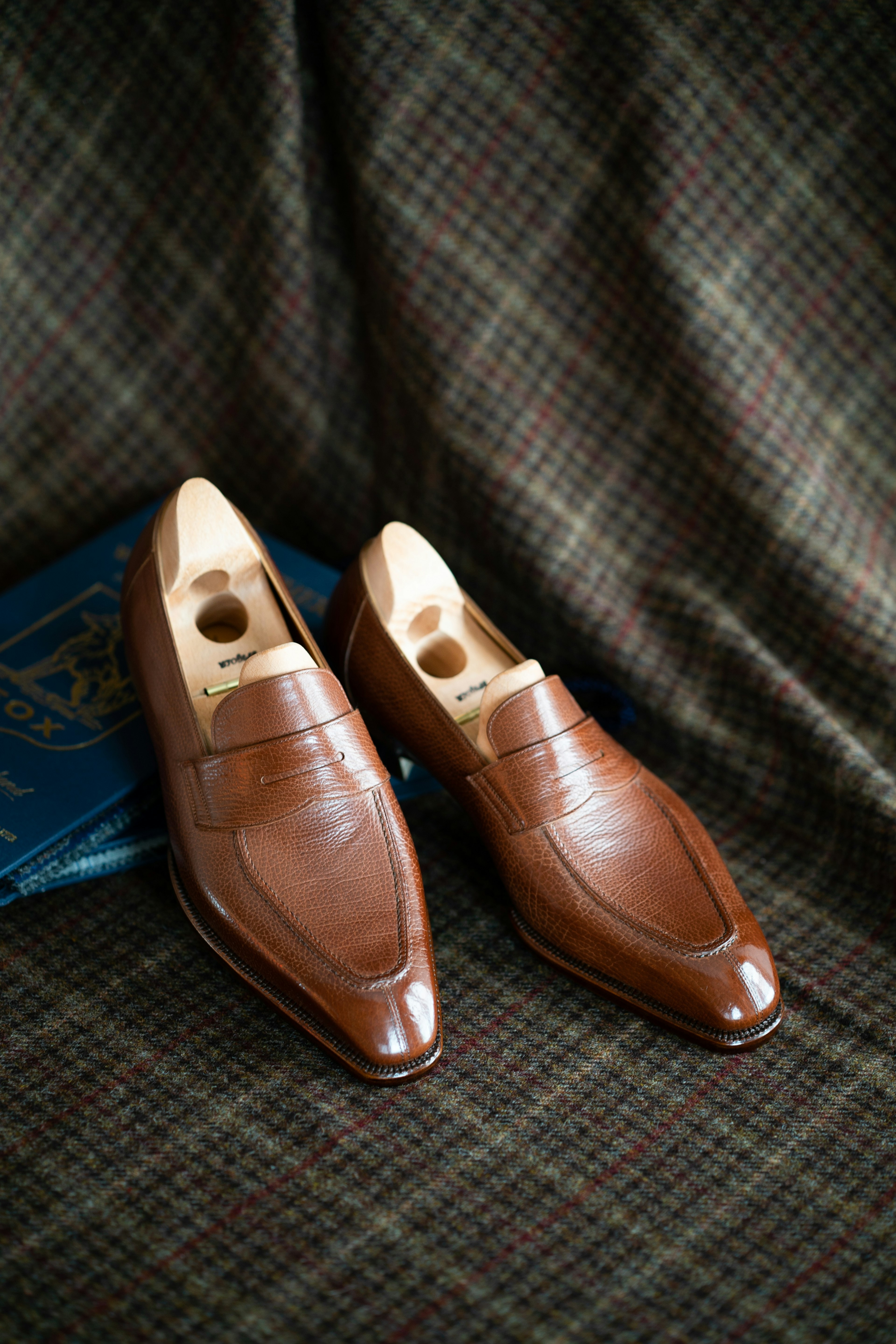

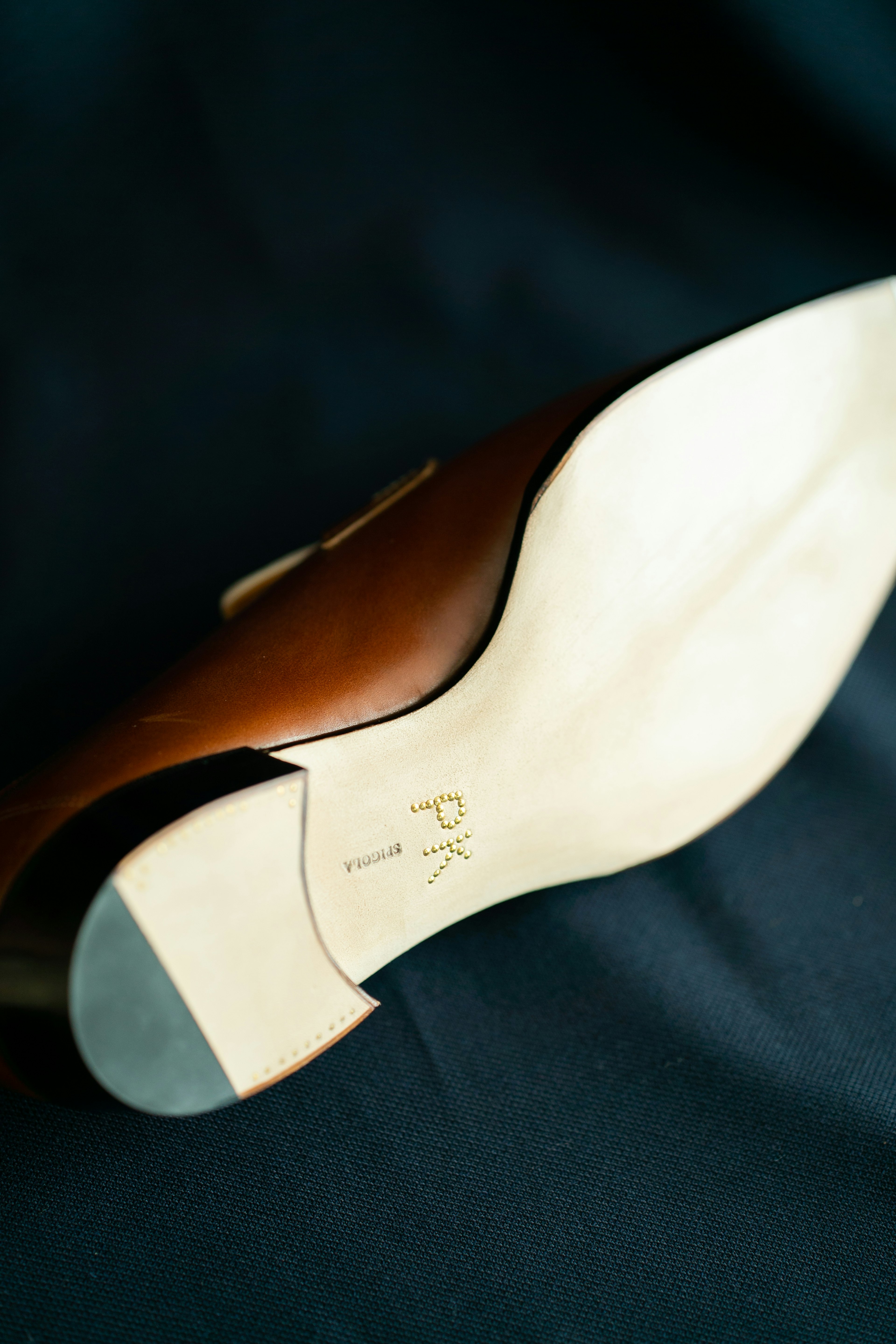
Customers can also choose from an array of leathers – a range that varies each time depending on the kinds of exciting materials that Suzuki discovers. Some of the shoemaker’s favorite skins include exotic and unconventional leathers like elephant, crocodile, llama, kangaroo and pigskin.
While there are many options to choose from, Suzuki admits that his favorite is still an Oxford cap-toe brogue because of its classic, simple shape and timeless design. Pair this with one of the unconventional leathers that he has on offer, and the result is an exemplar of his unique style.

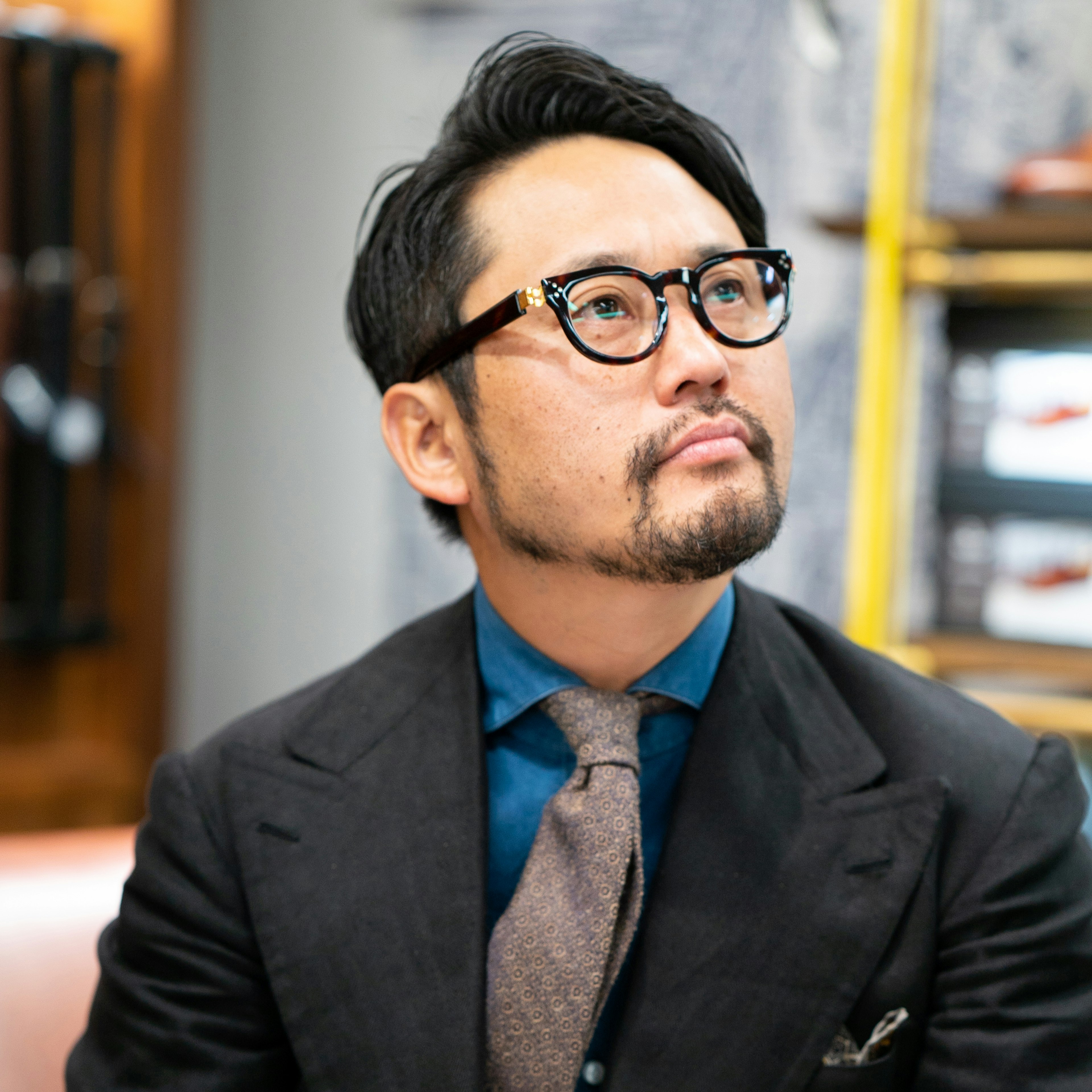
When it comes to shoes, bespoke can make quite a difference. Compared to tailoring where a centimeter or two won't drastically change the look or feel of a garment, the slightest adjustment can be felt if a shoe is either too tight or too loose. During a bespoke appointment, design inspirations are shared and detailed measurements are taken. Clients can choose from dozens of leather swatches and sole options.

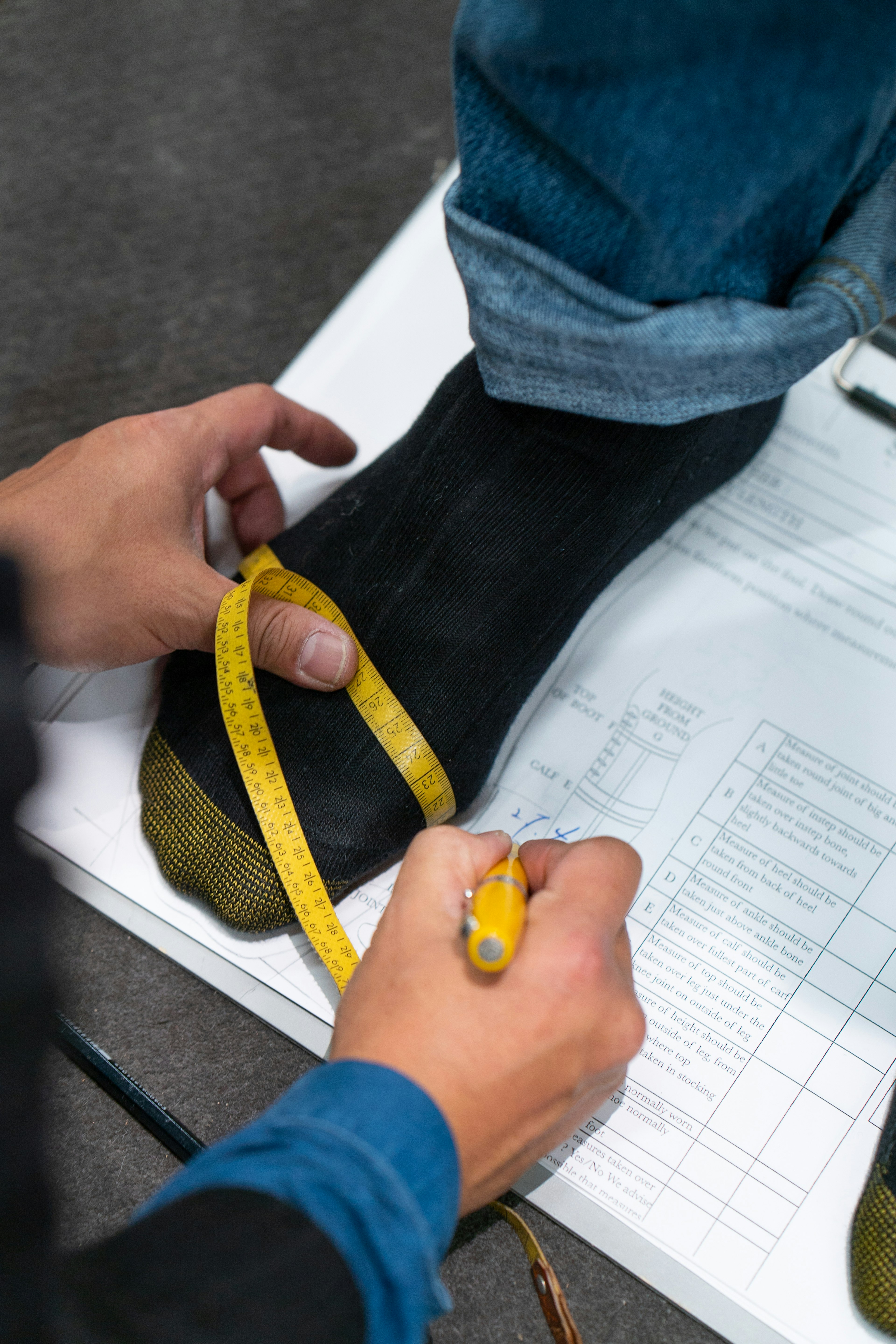

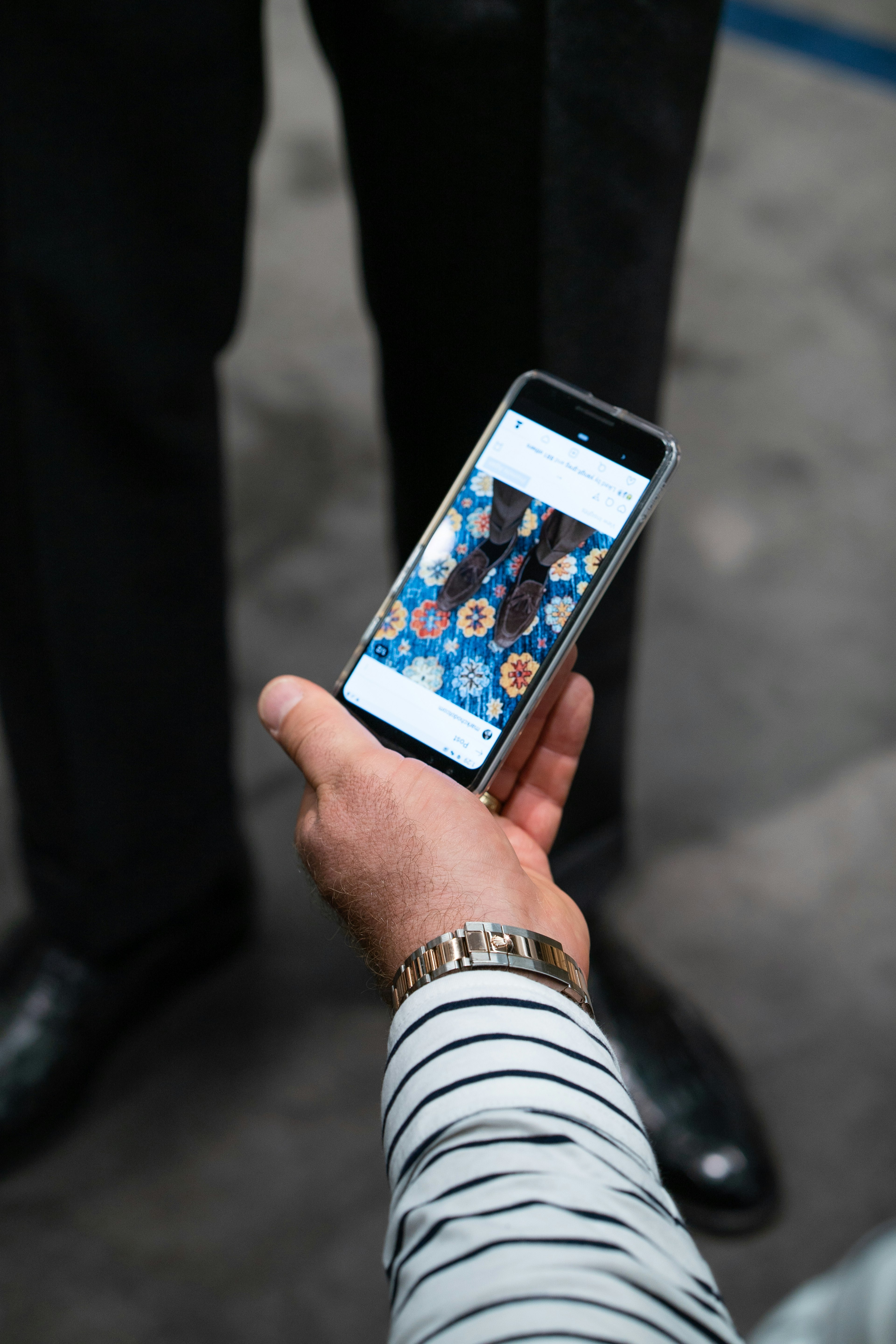

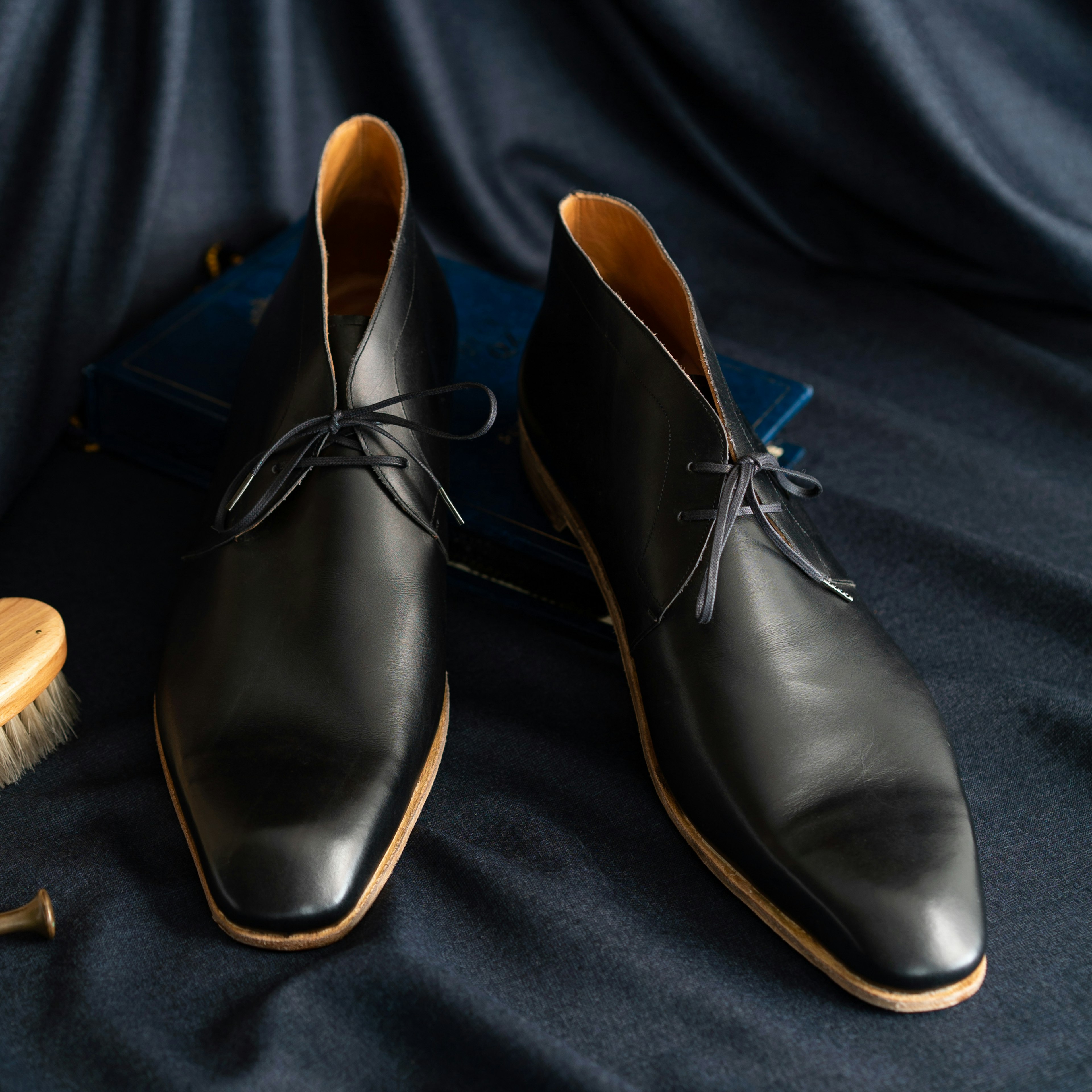
Bespoke shoes include a fitting with a trial shoe. The trial shoe is temporary version of what will become the final pair. They allow the customer to get sense of how the shoe will look, and they give the shoemaker a chance to cut out pieces of the trial shoe to see how the shoe is fitting on the inside.
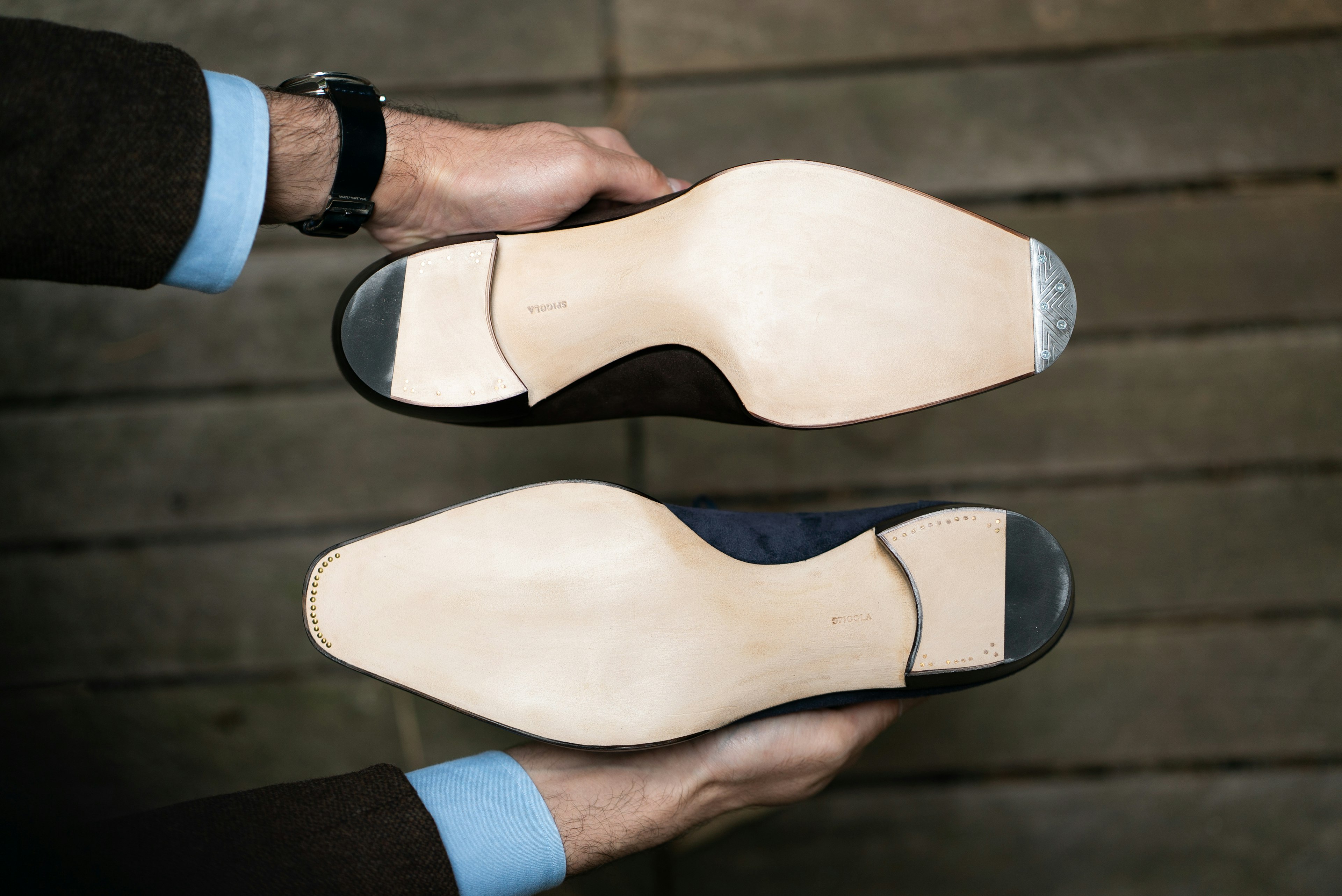

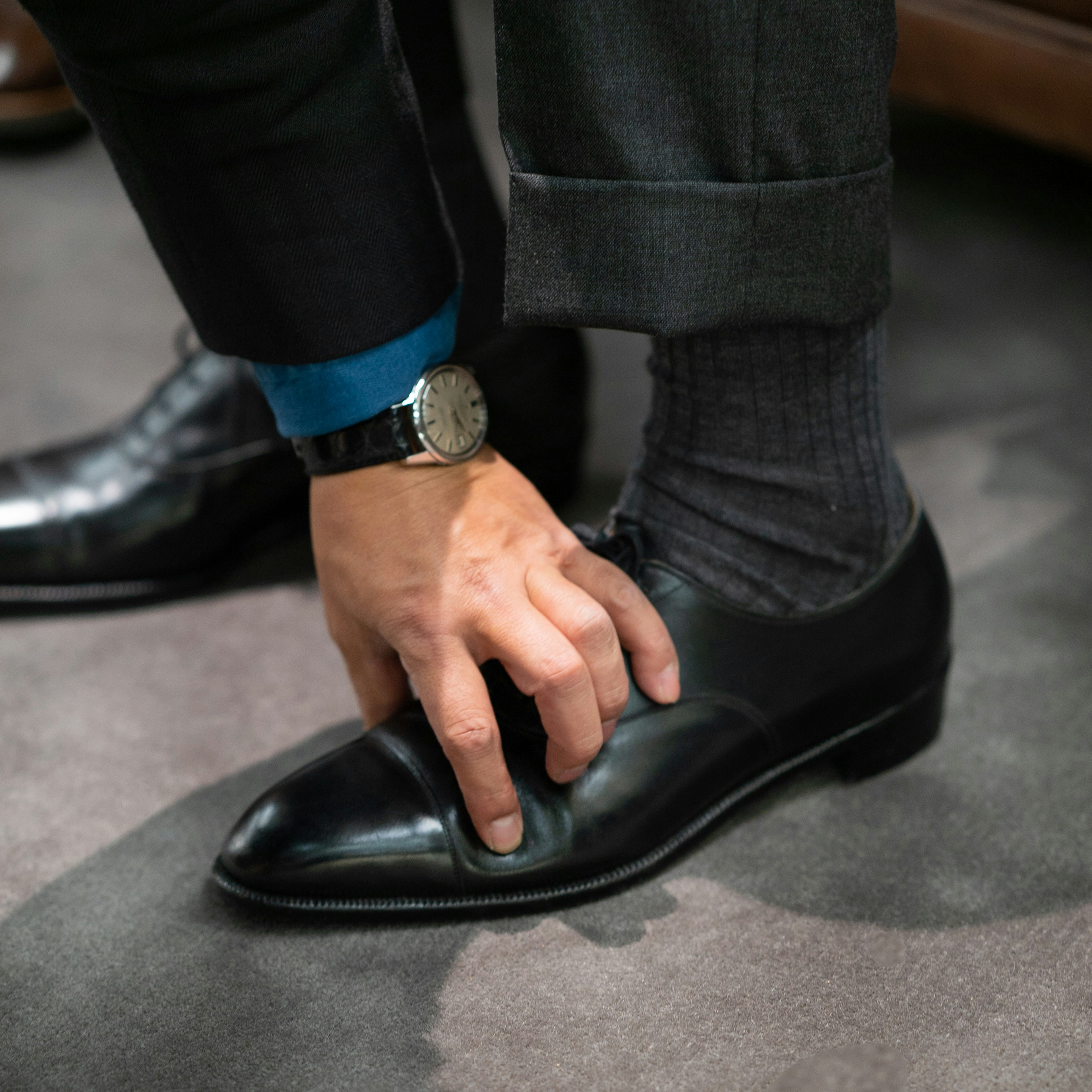
Koji's made-to-order service provides custom shoes without a custom last. Customers choose styles from Koji’s many design samples and uppers can be made from the same vast array of leather swatches offered to bespoke clients. Additional options such as sole material, monograms and flush metal taps are also available.

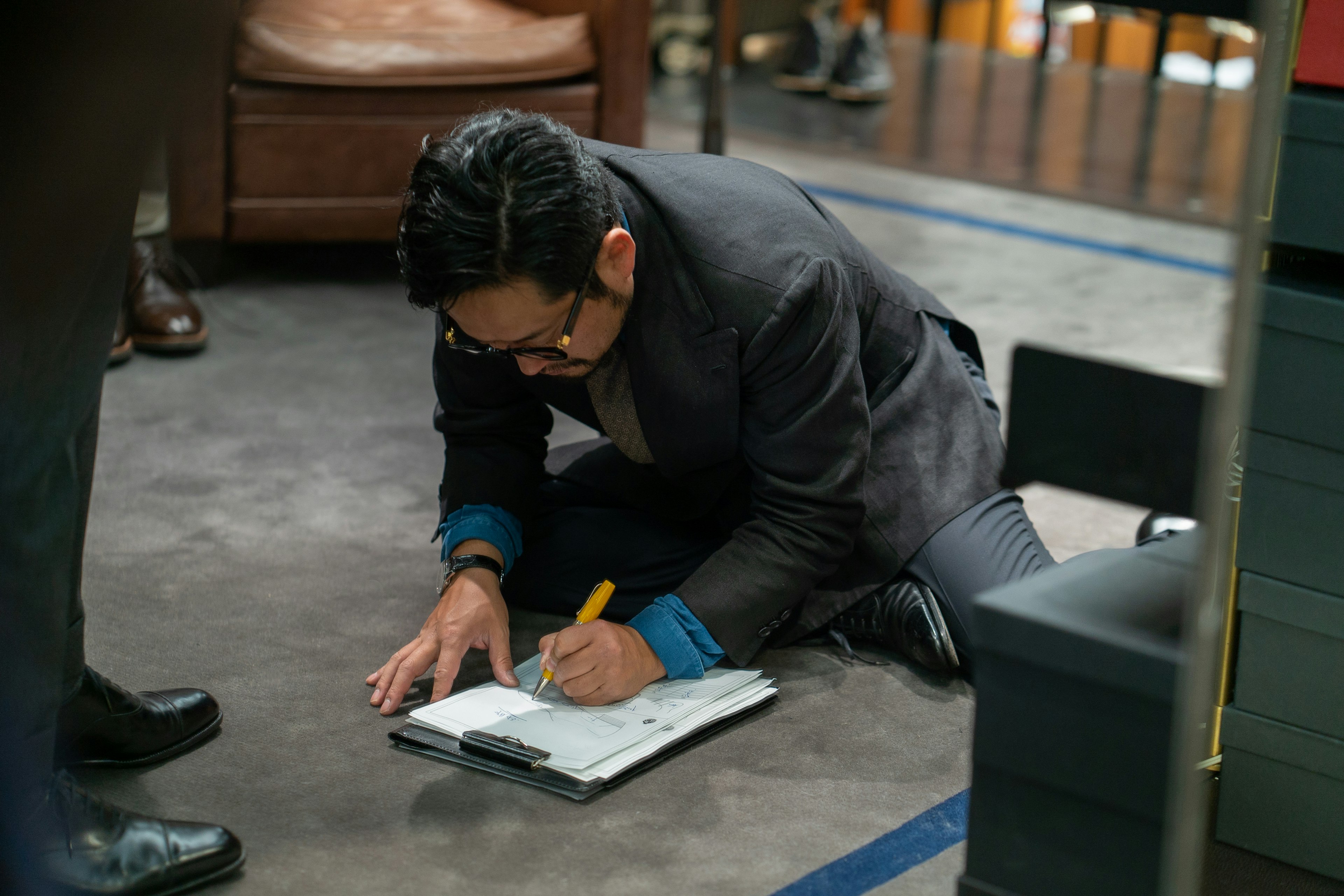

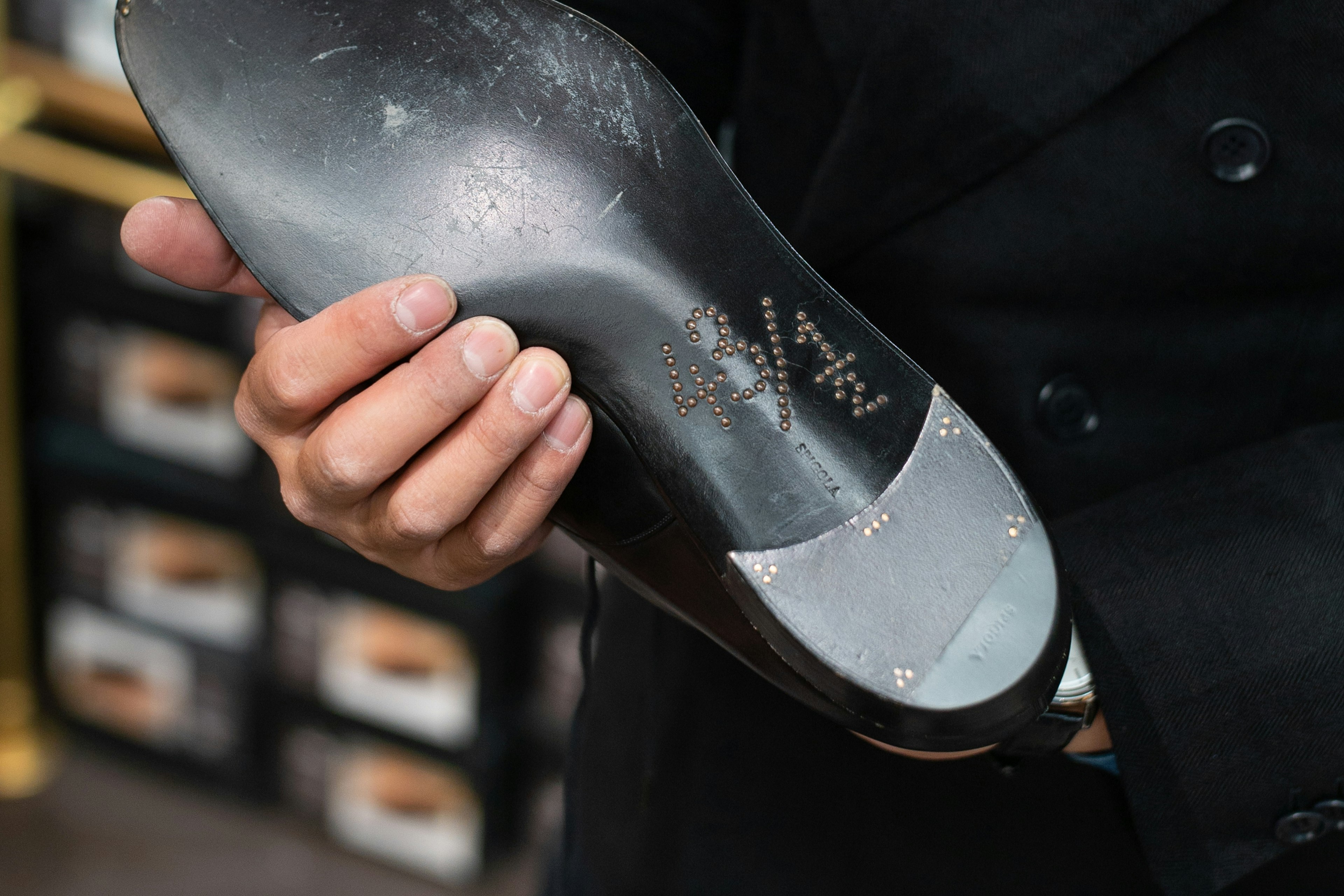

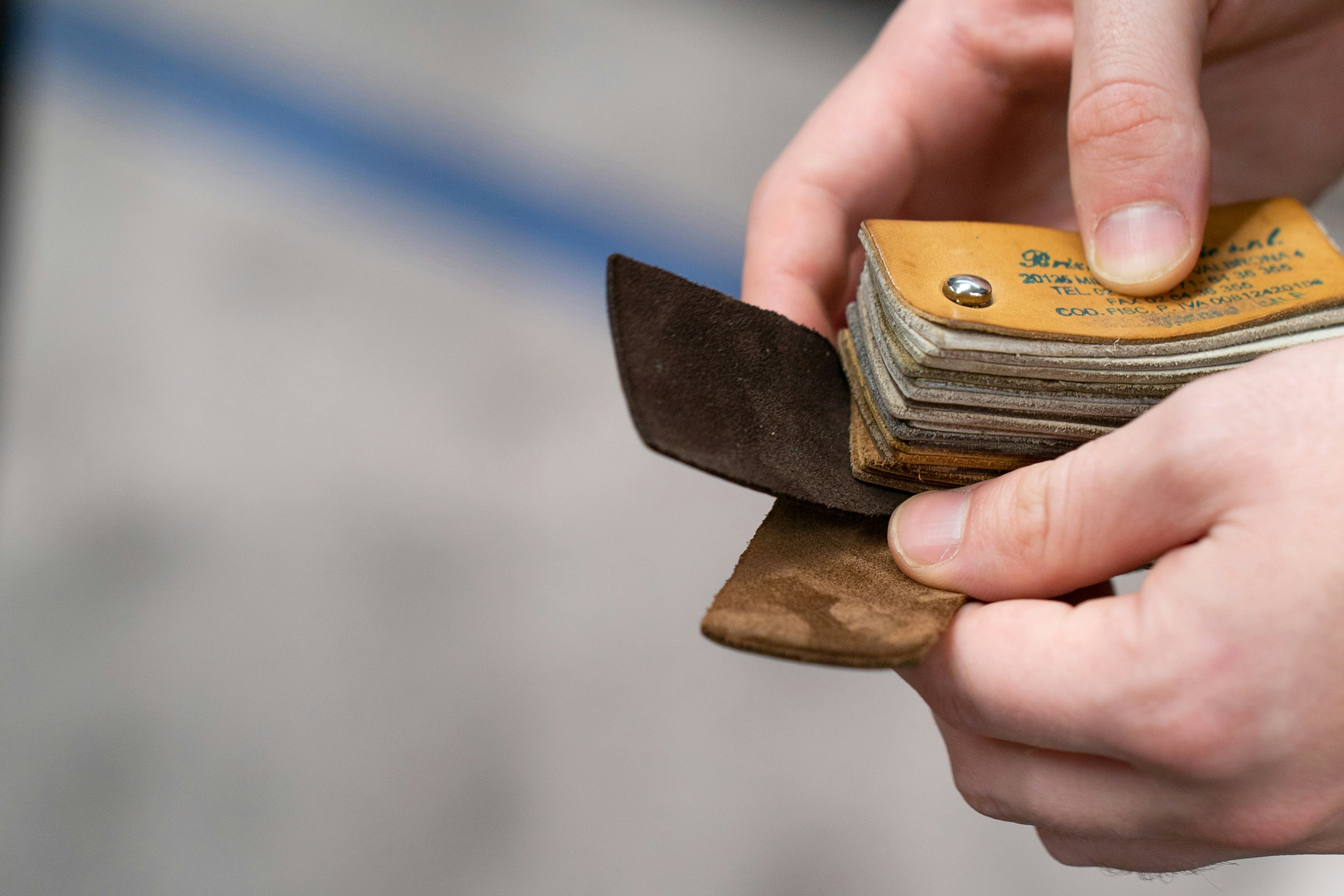

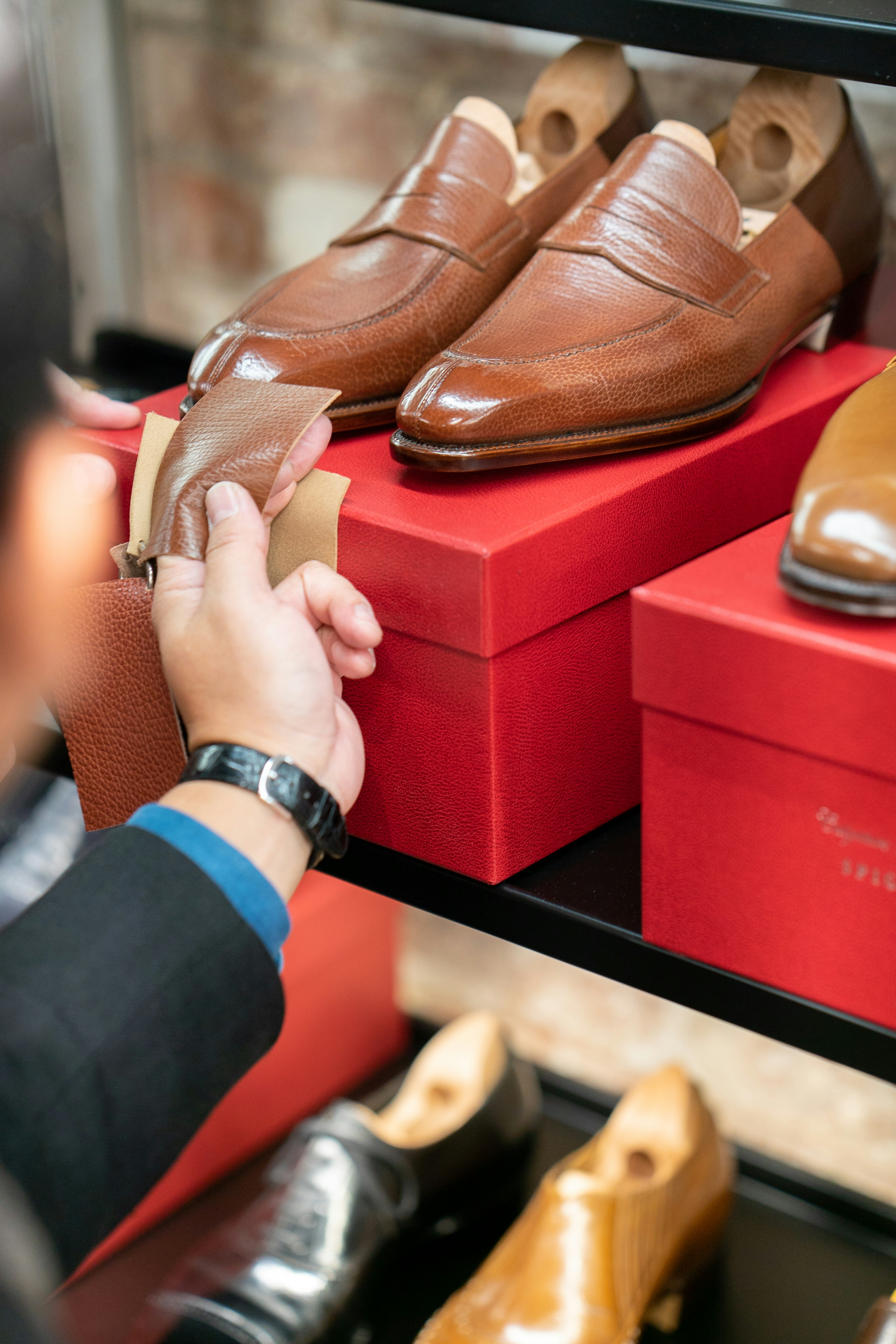

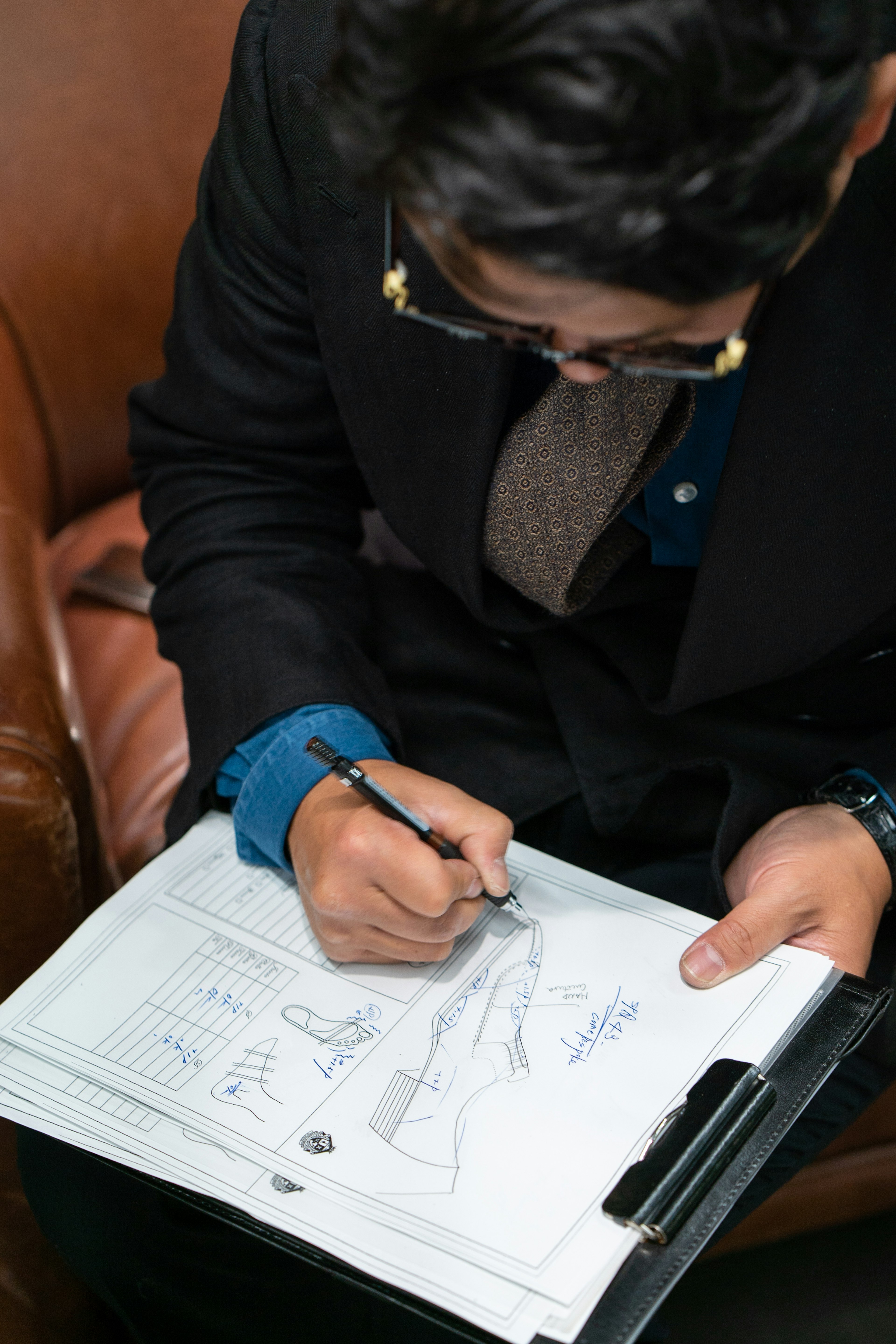

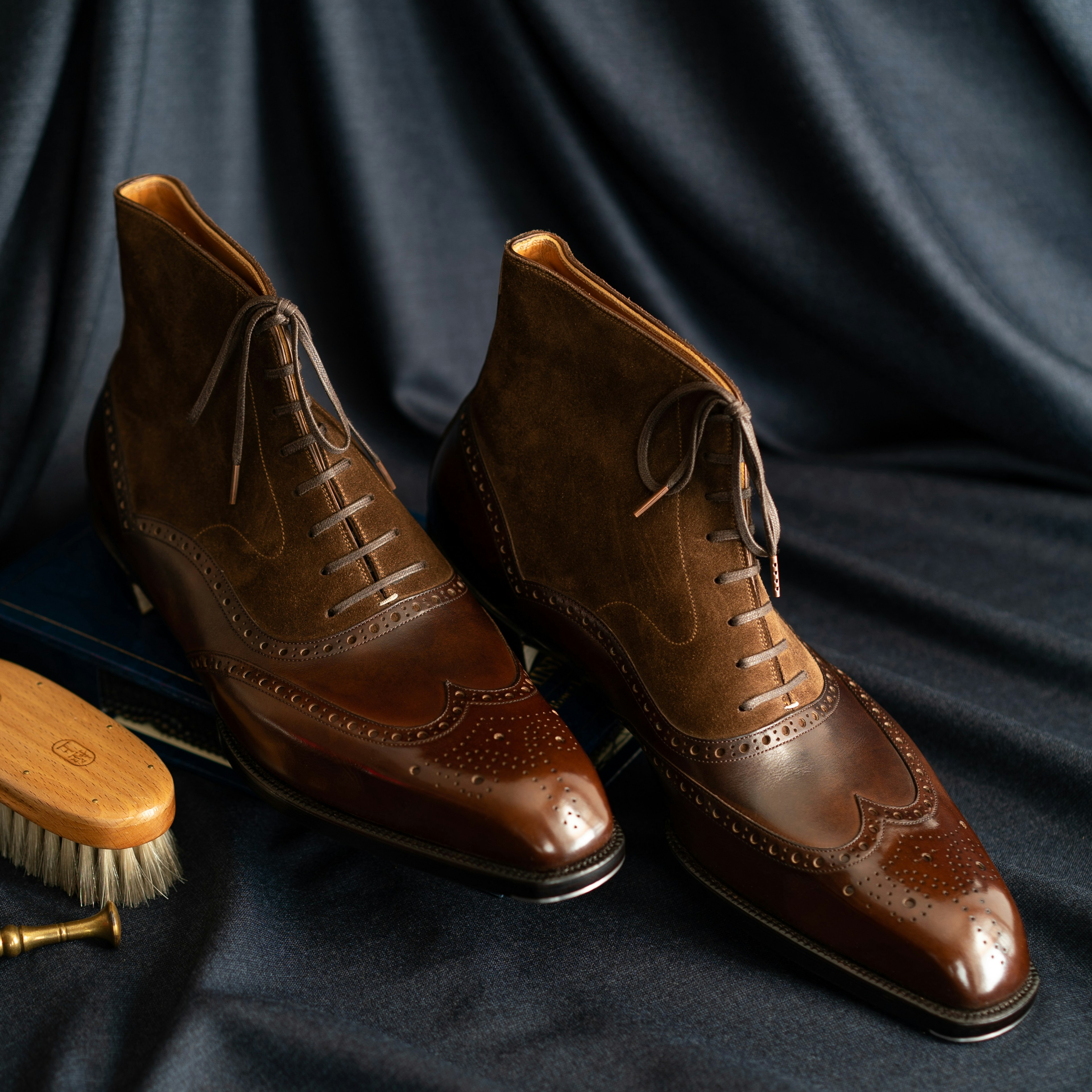
These wing-tipped boots combine brown suede with a mid-brown calf and feature Koji's signature hand-sewn tack at the throat. The soles are made of leather with a flush rubber topy and metal toe taps.

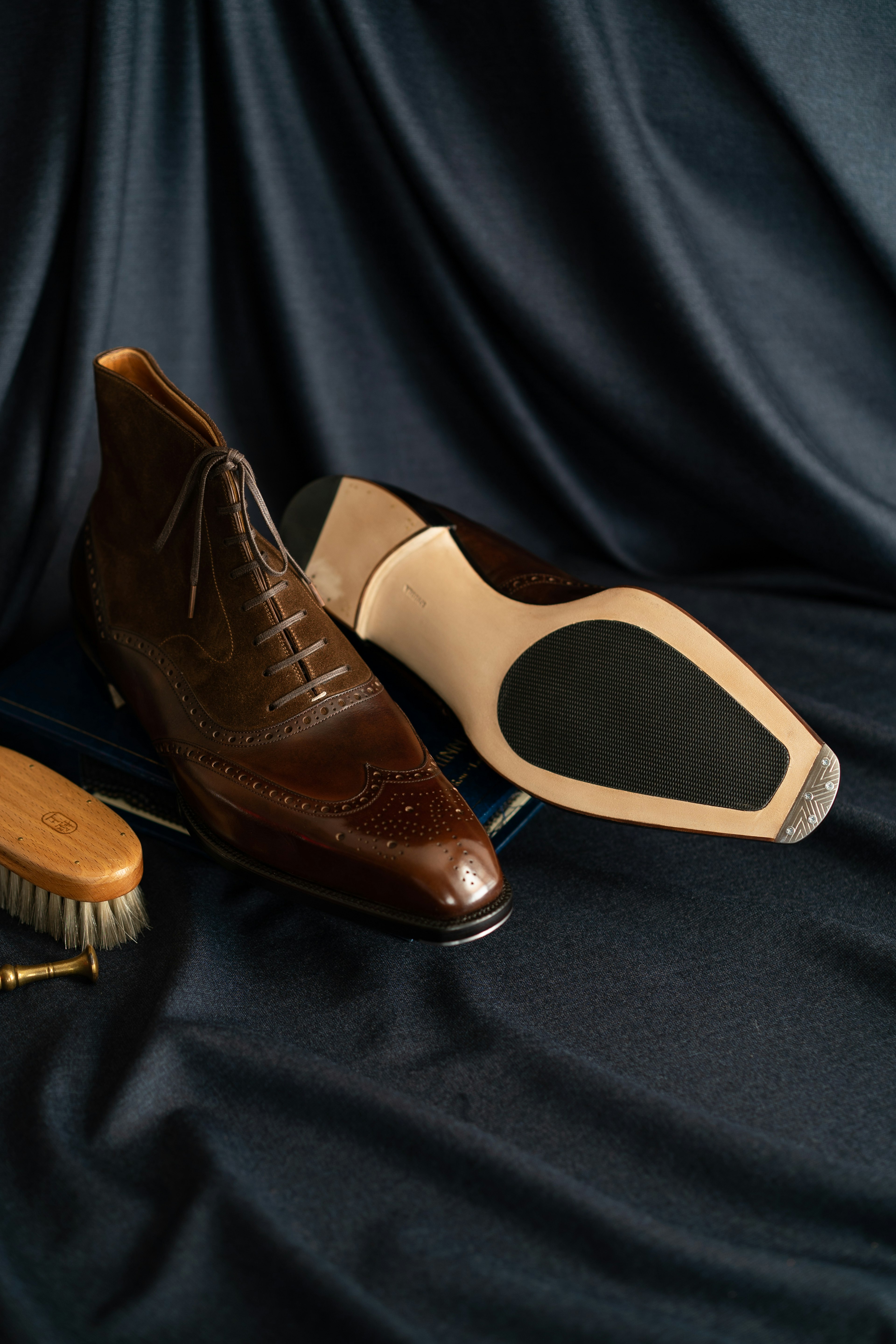

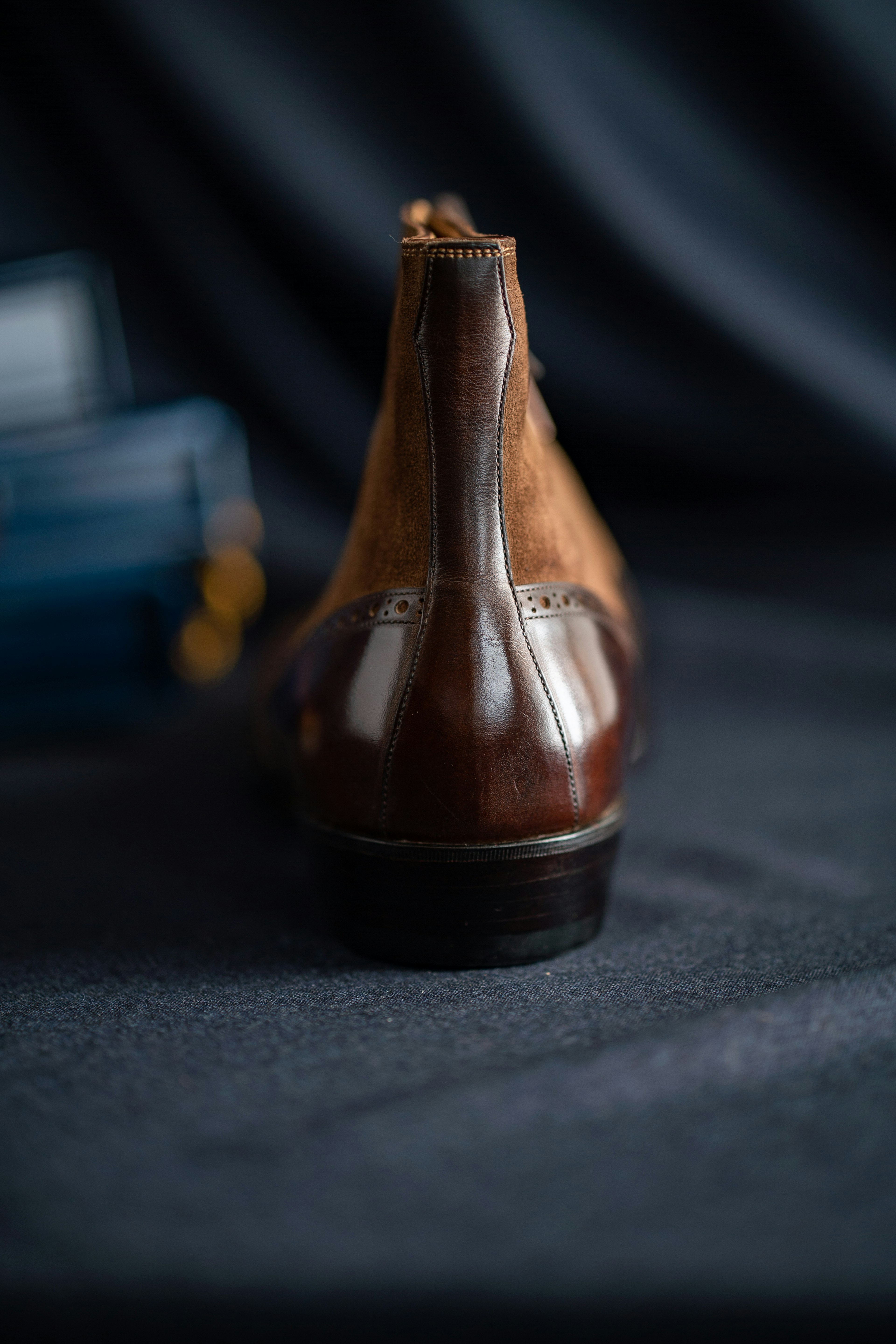

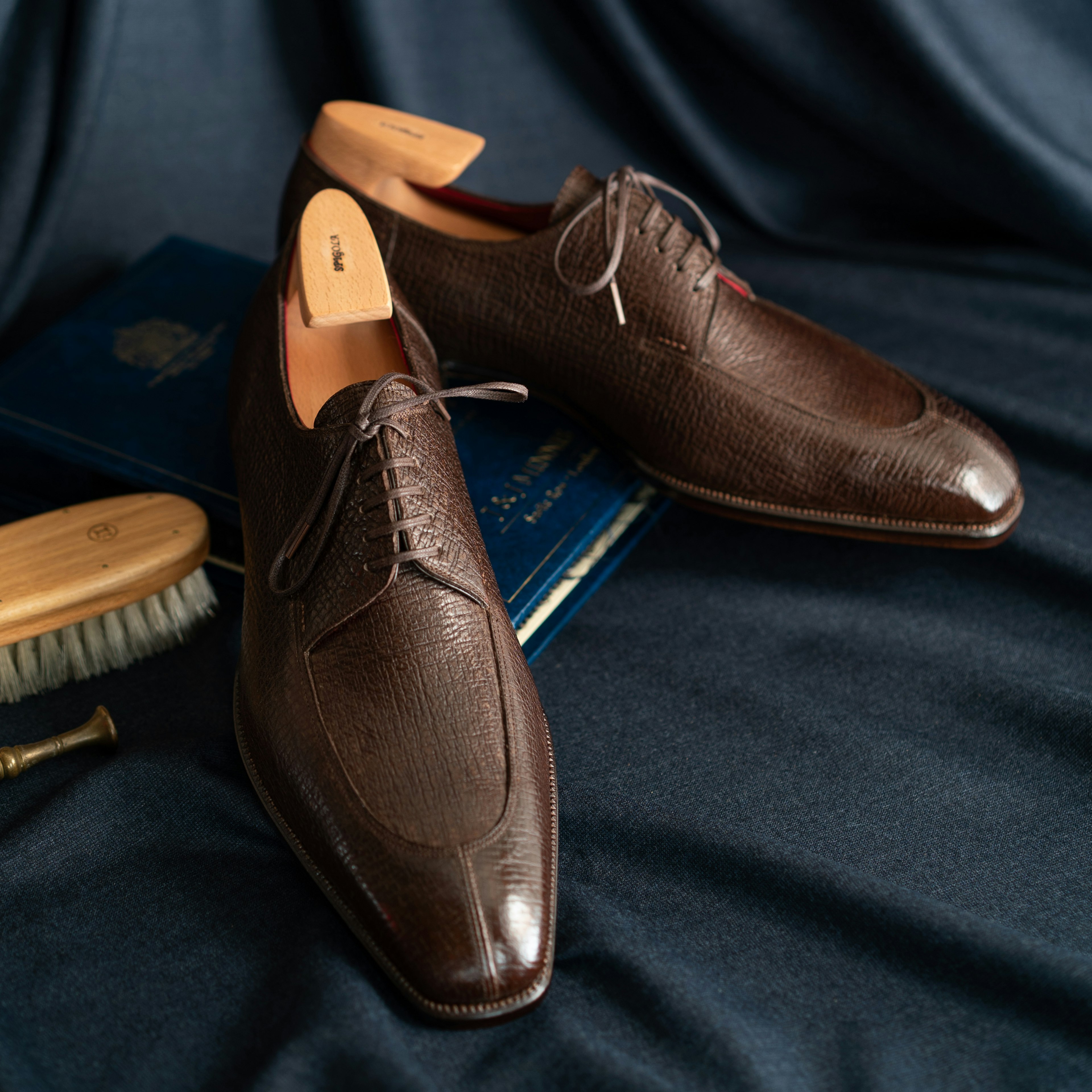
These split toes are one of Koji's classic designs, made up in a rugged shrunken calf leather in mid-brown with full leather soles. Mr. H also requested full red leather lining for these derbys, which adds a pop of color visible at the seams.

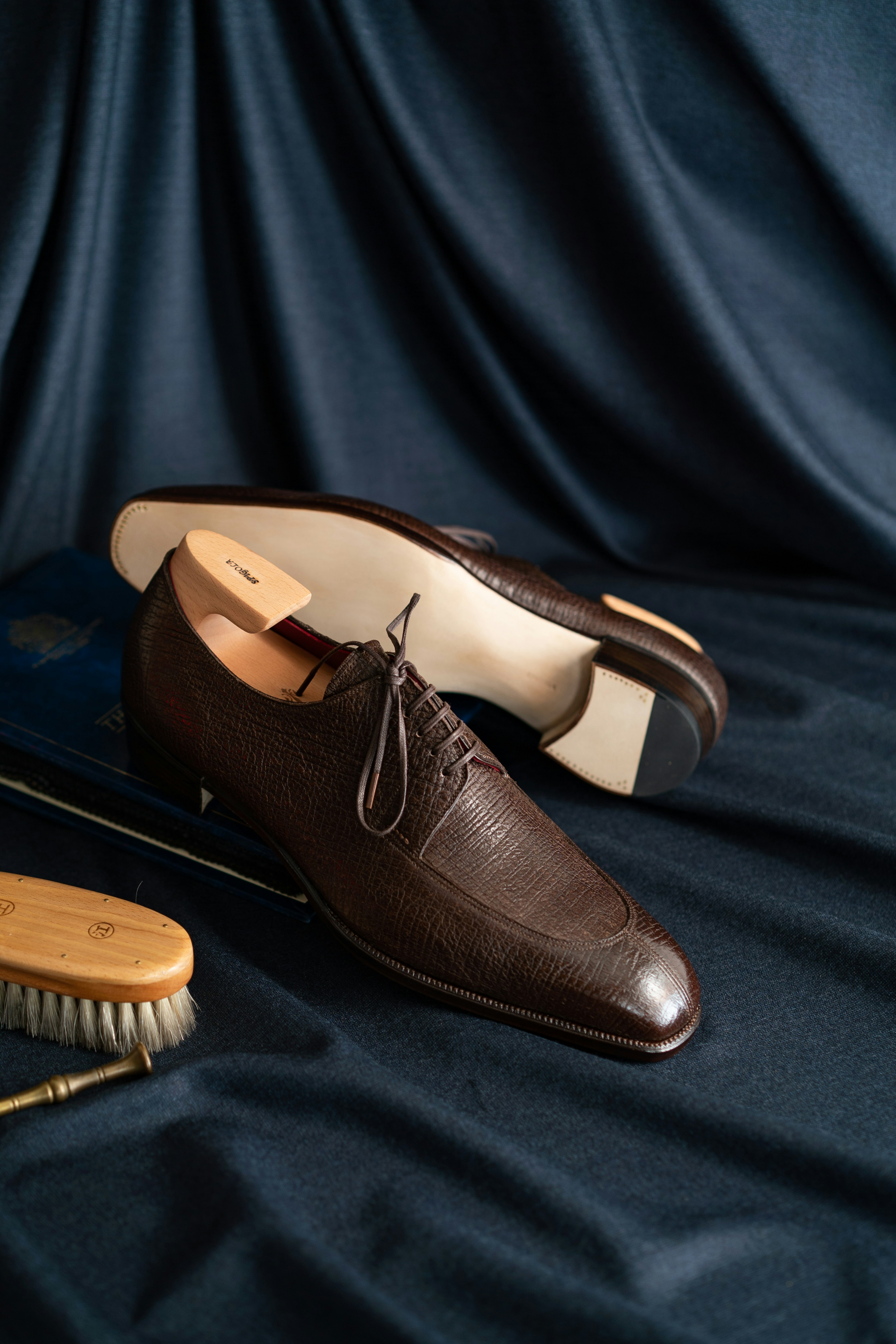

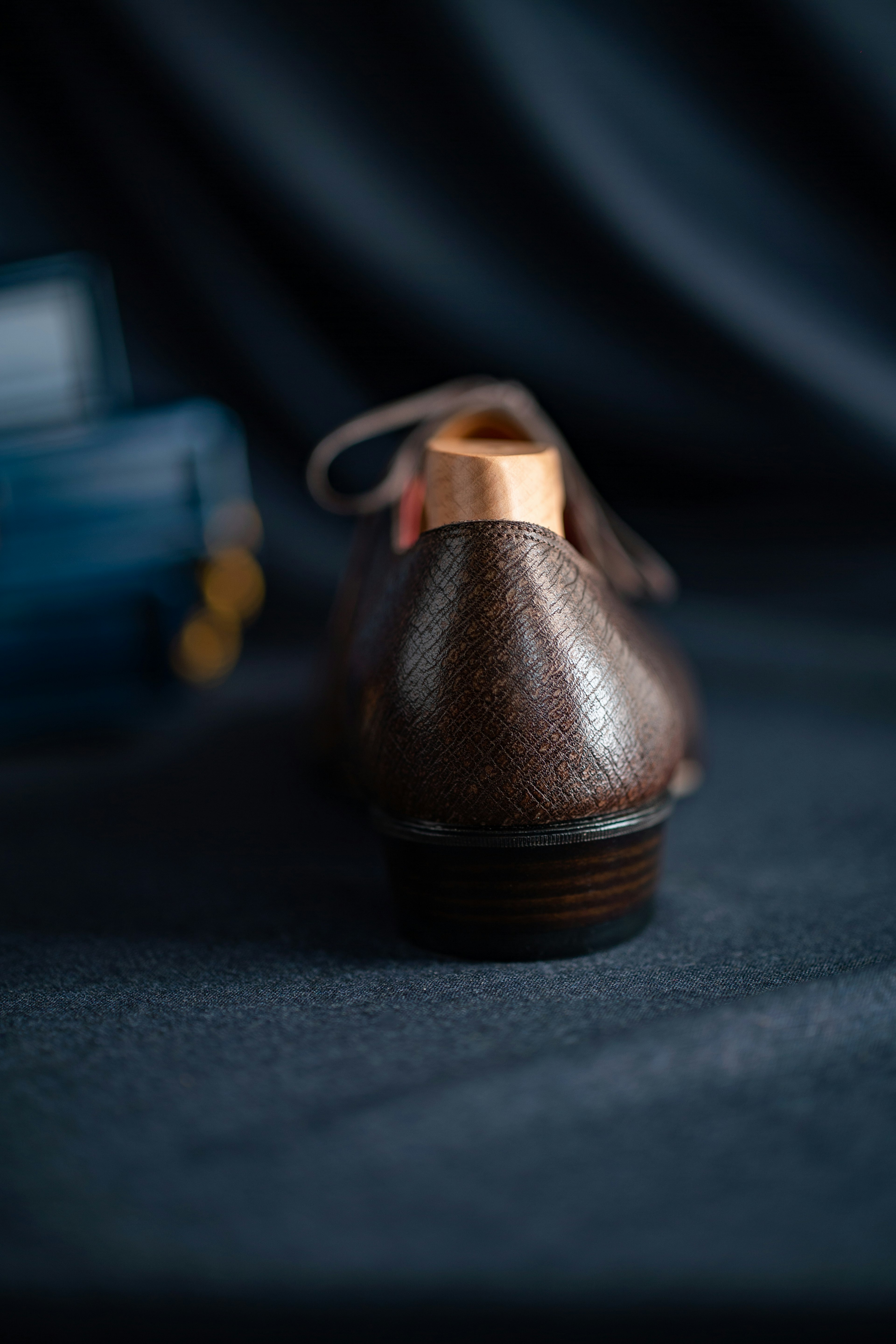

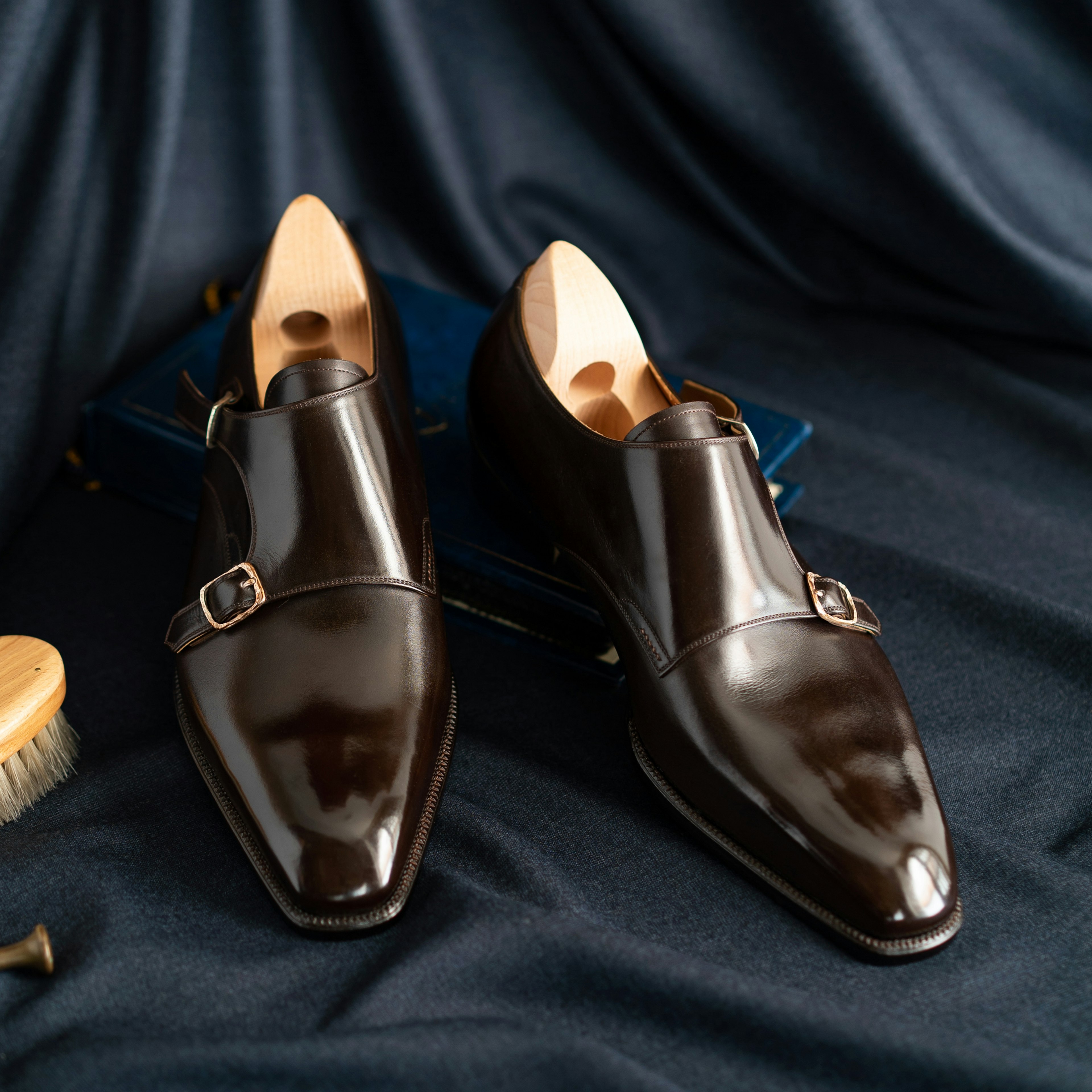
These double-monk strapped shoes are made in a dark brown calfskin with hammered buckles. Koji waits to perforate the strap holes until the final delivery to ensure the best possible fit.

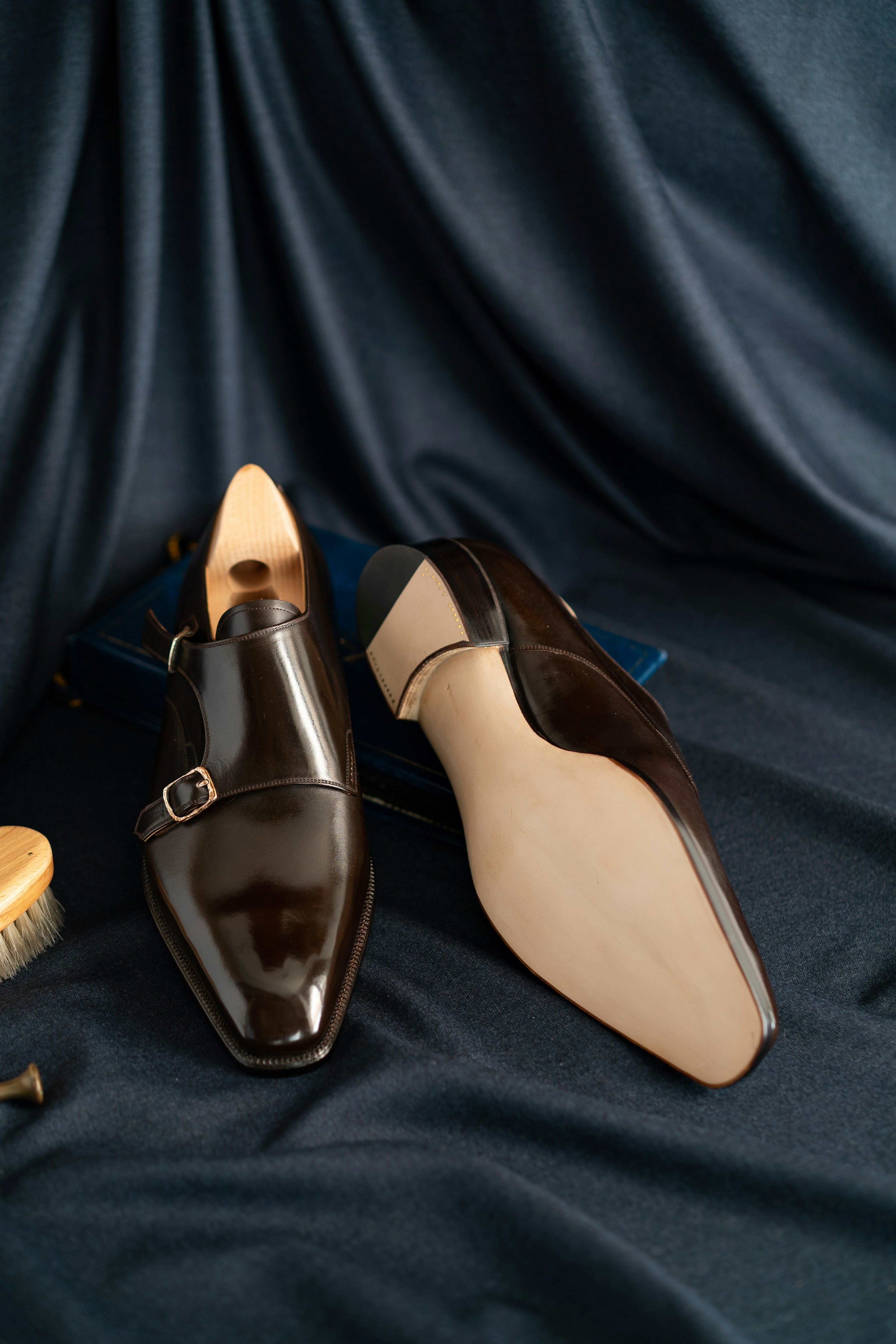

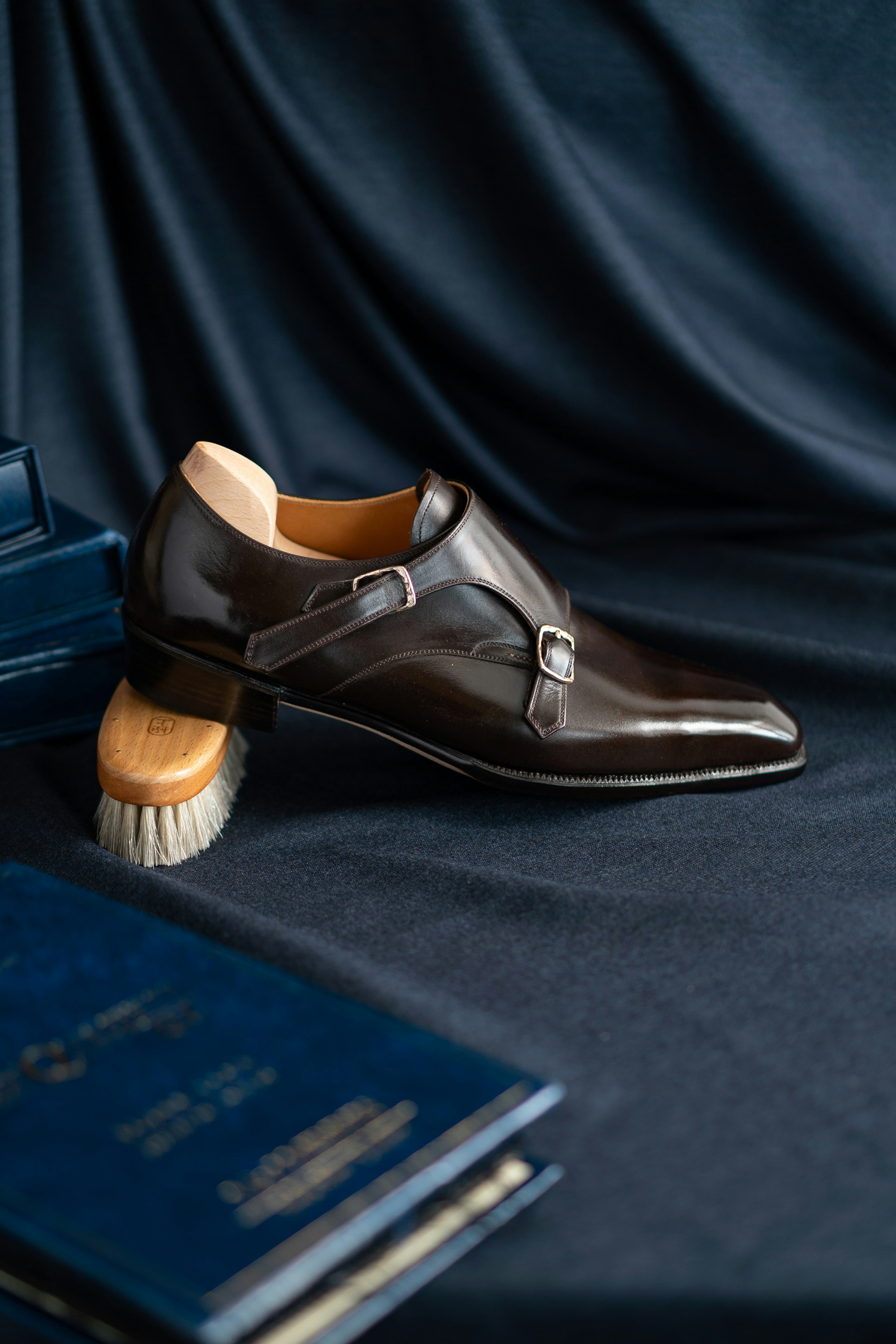

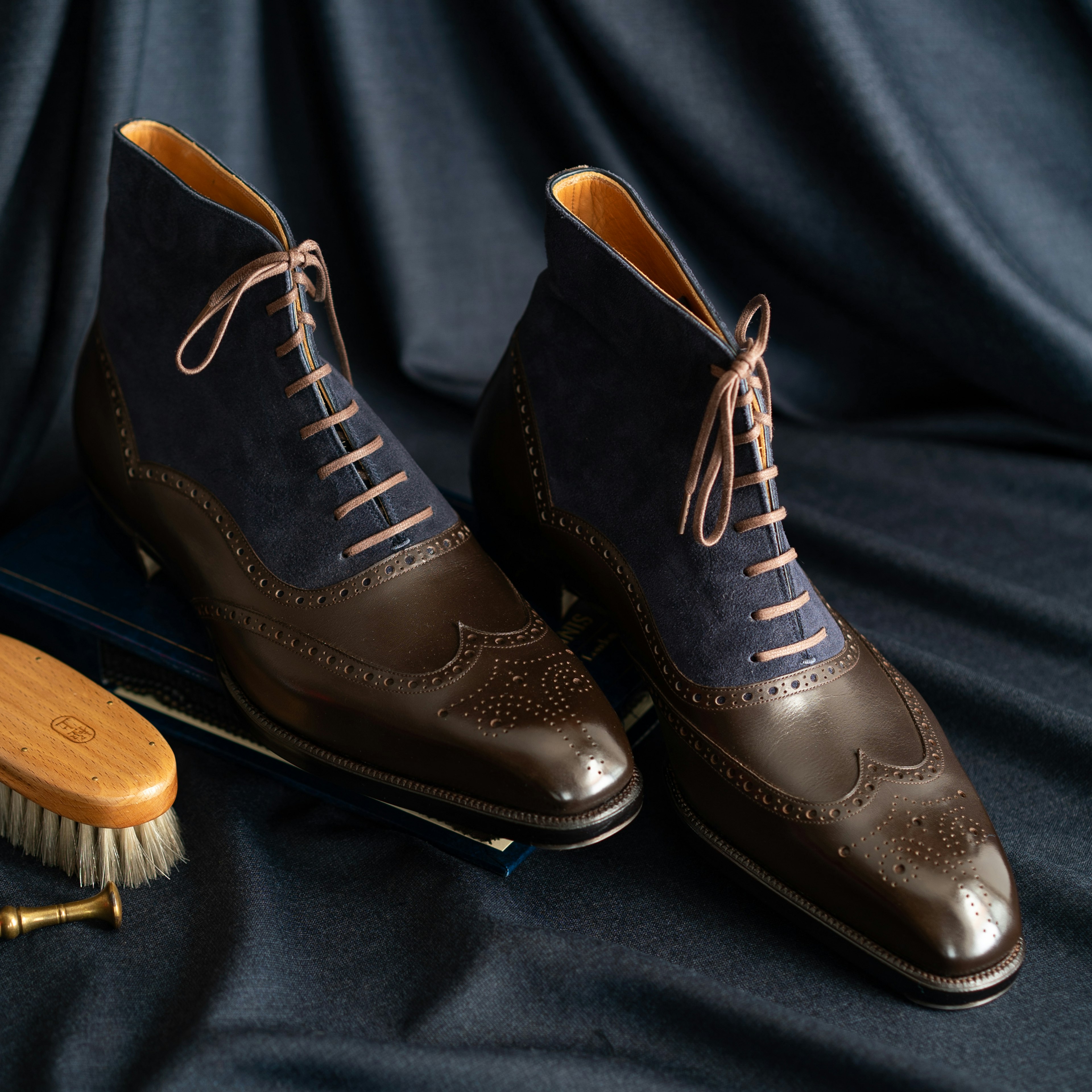
These boots feature an added pop of color using a blue suede on the uppers to contrast the brown calf vamp. Note the canted heel, a slight taper to the heel that has become signature of handmade footwear.

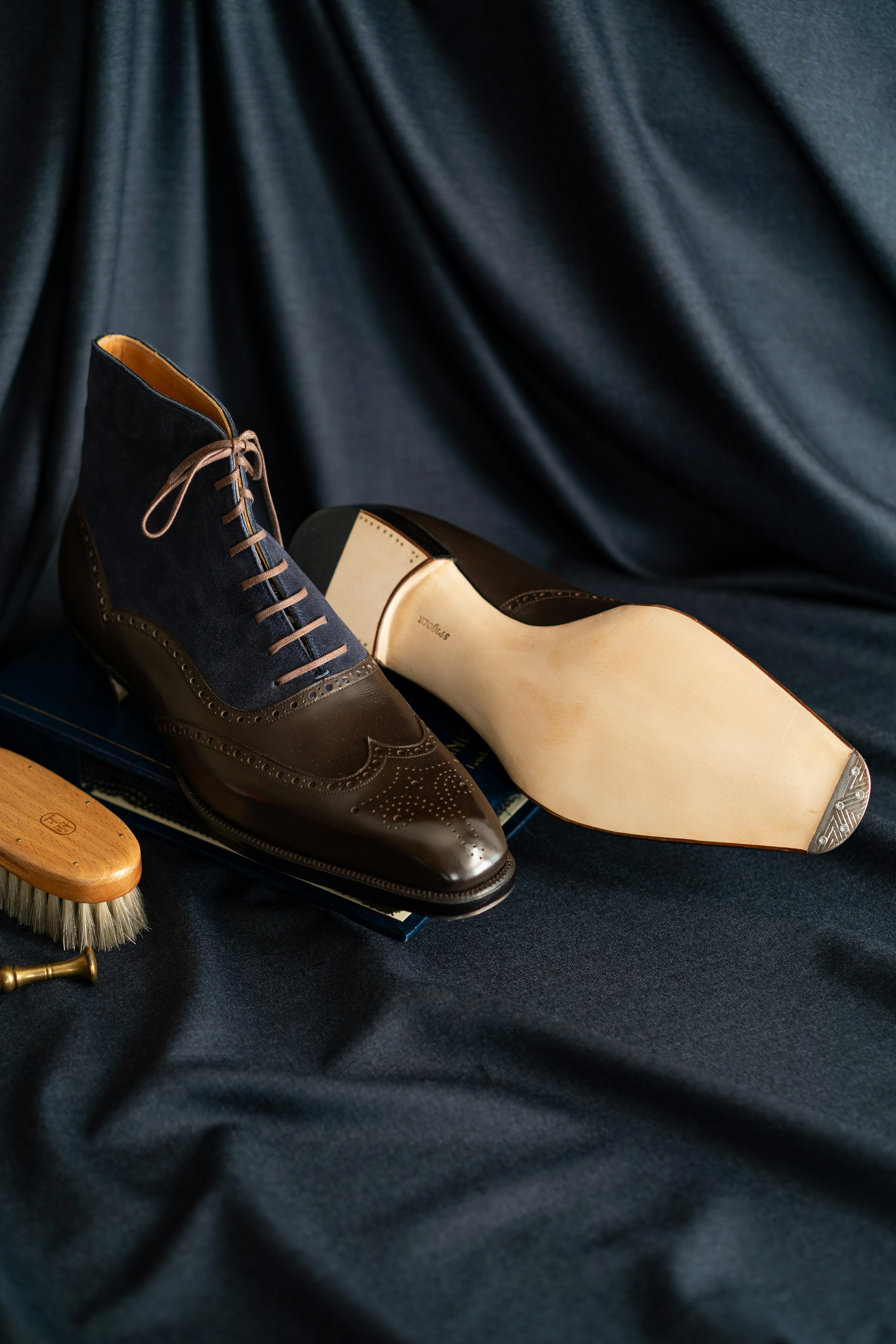

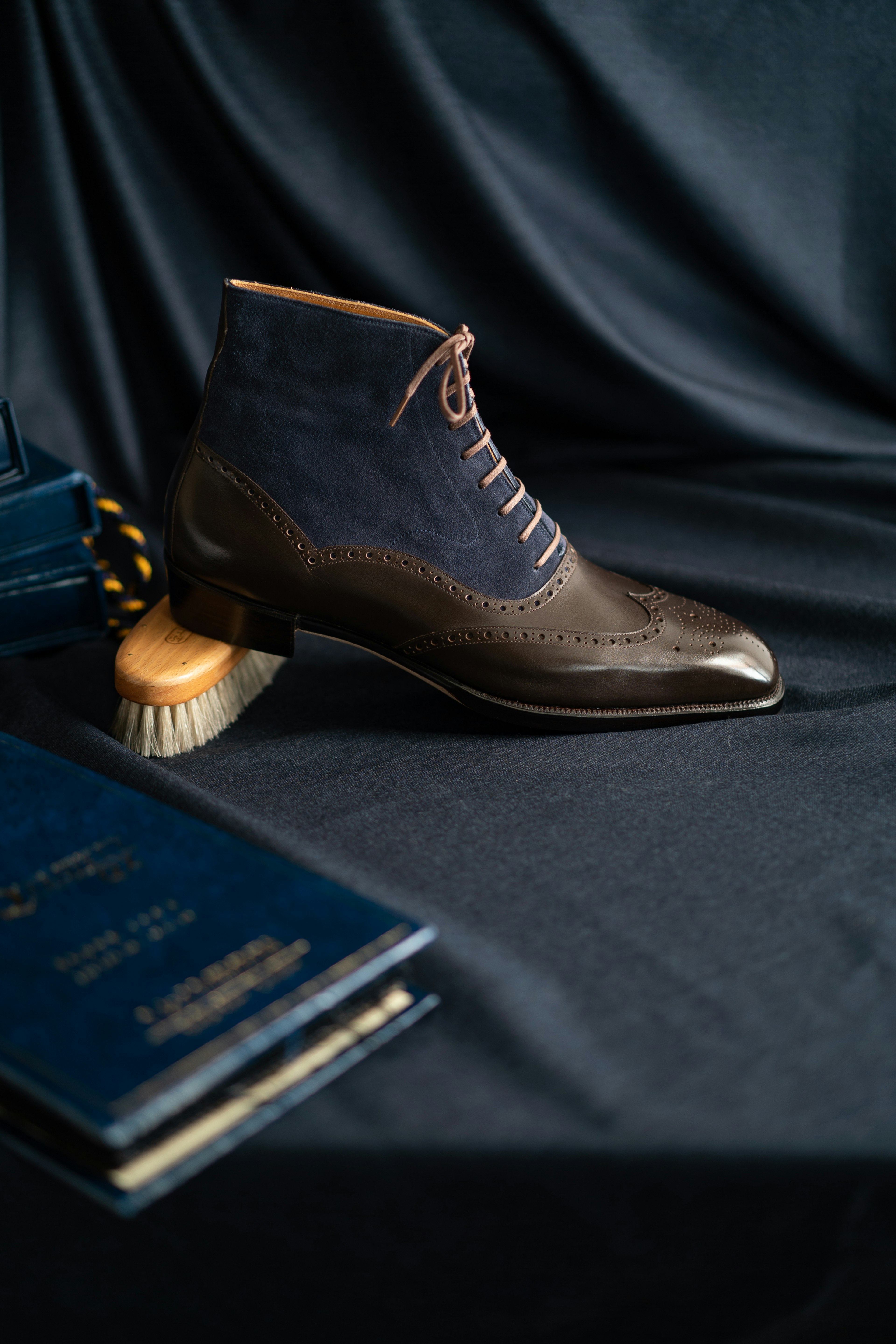

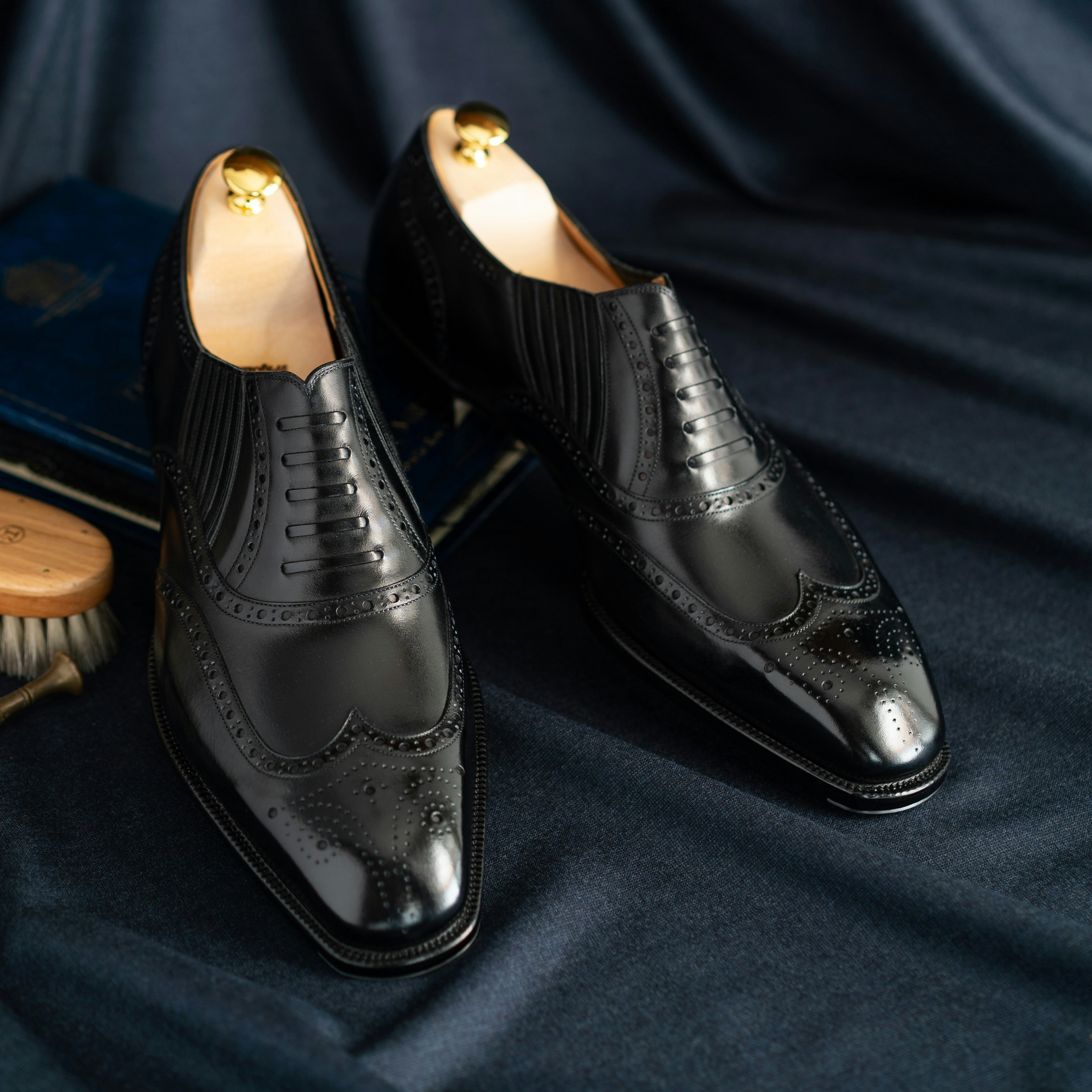
This pair of black calf wingtips uses elastic side panels to create the look of a full lace up shoe with the benefits of a loafer. The “laces” themselves are made from the same black leather. Note the heel cup of these shoes are slightly angled to form fit the wearers heel.

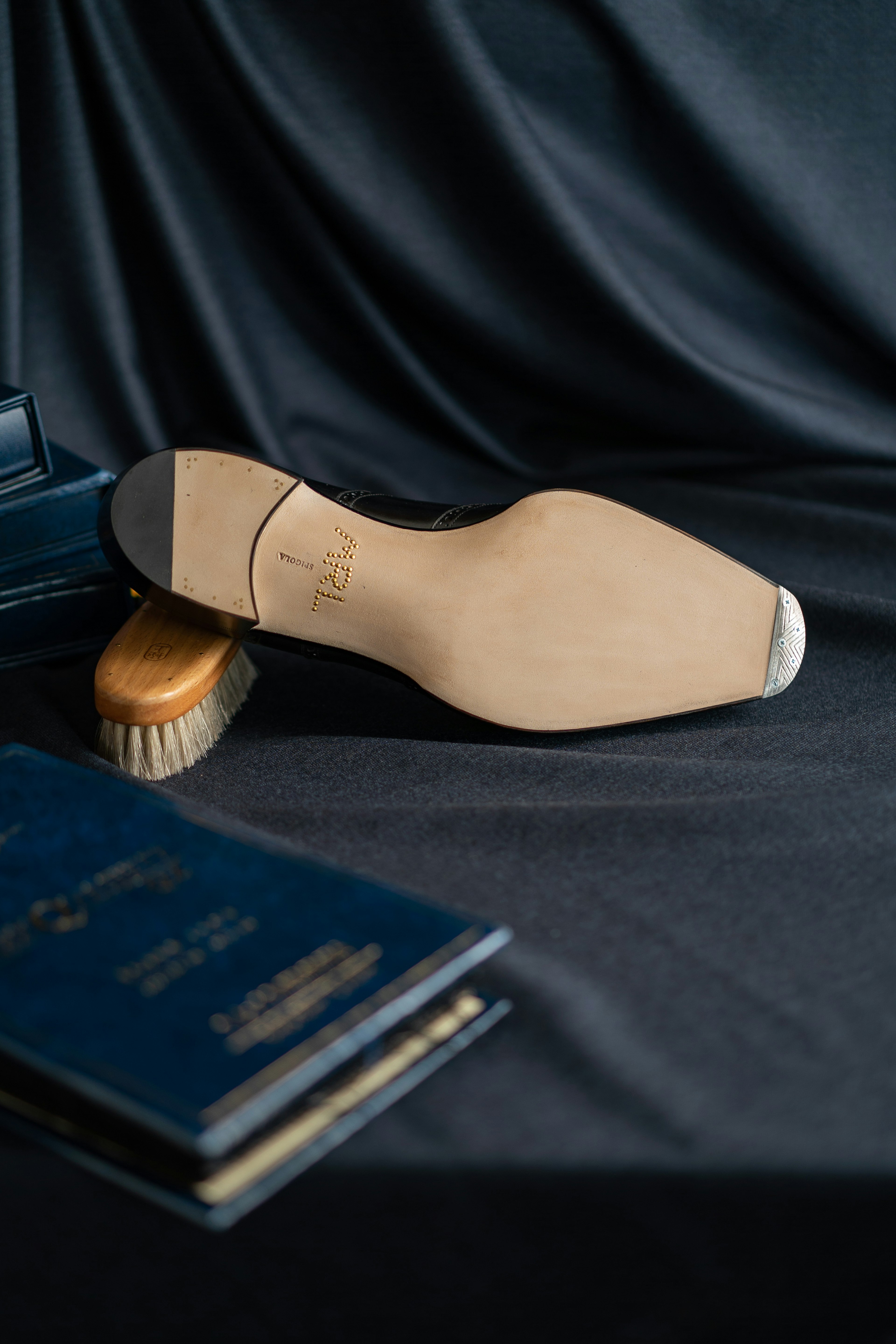

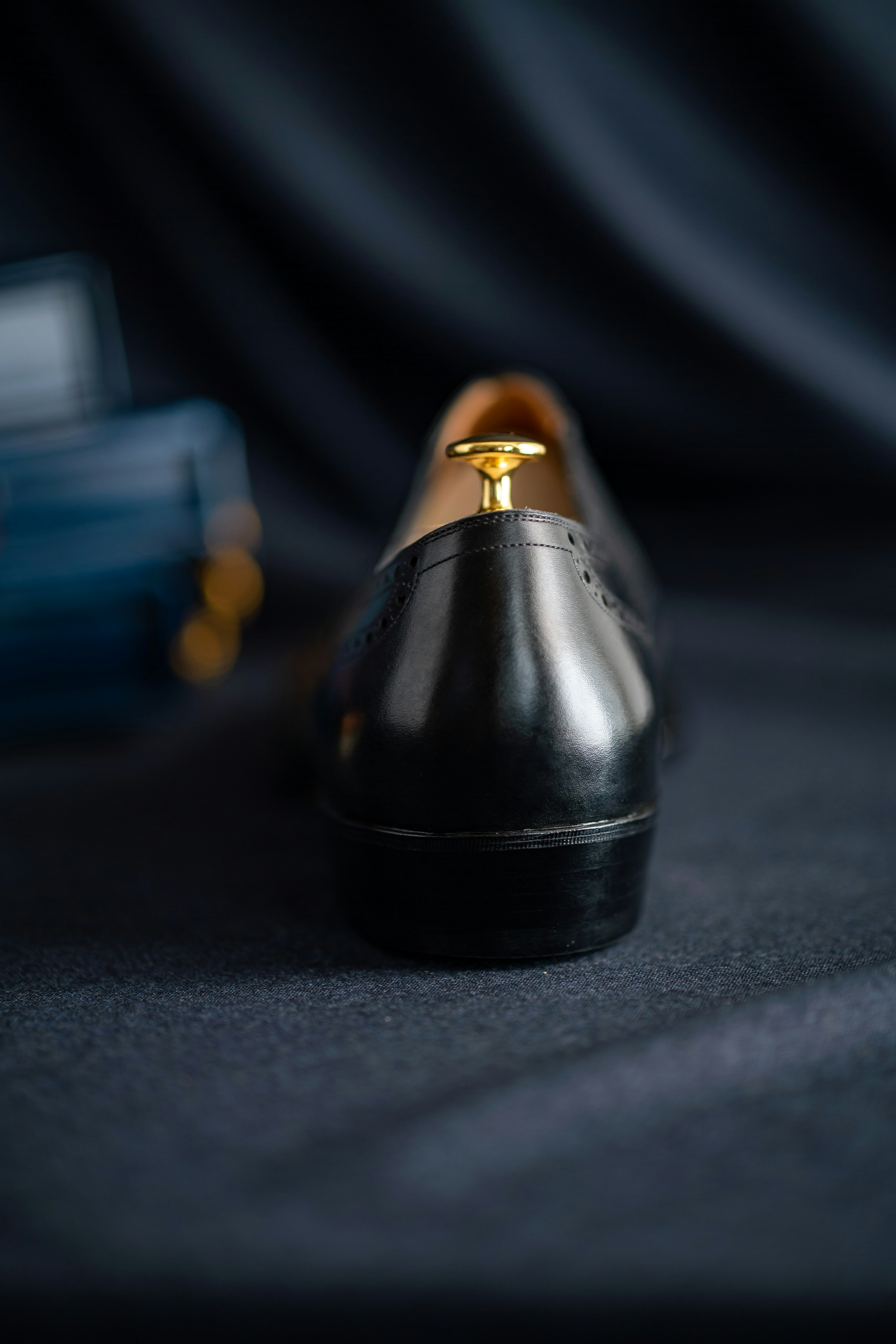

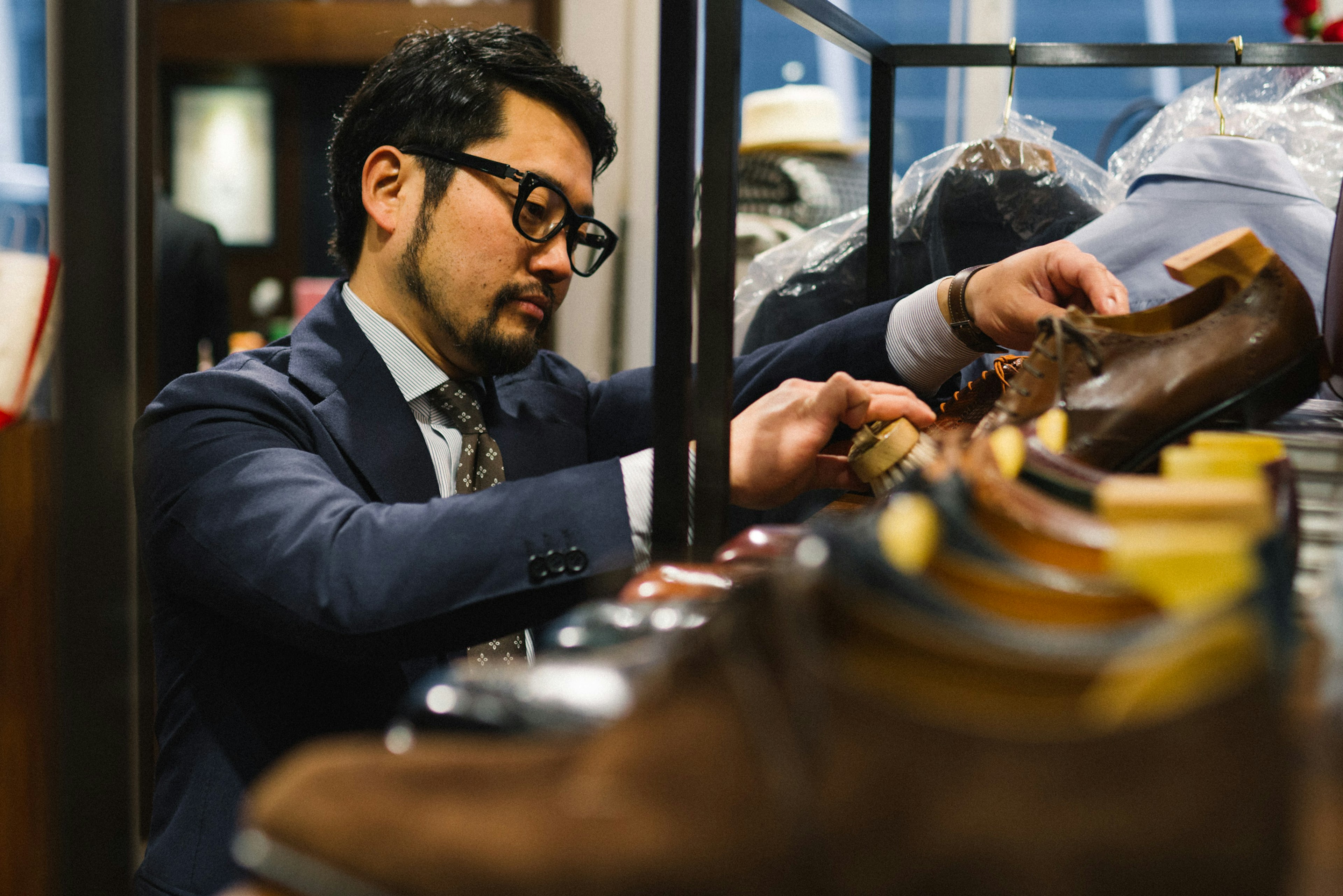
Trained in Florence, Italy, his classic style emphasizes balance and proportion. Each pair is customized for the wearer. With dozens of designs and leather swatches the options are seemingly endless. Koji visits New York for trunk shows twice per year.
SEE MORE

